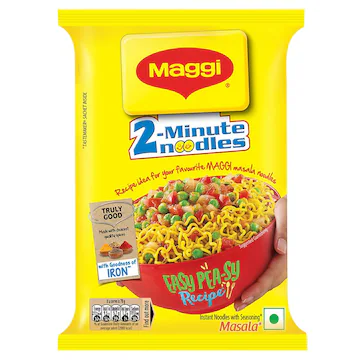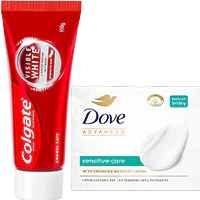OUR POLICIES
- Privacy Policy
- Cookie Policy
- Terms & Conditions
- User Agreement
- Compliance
- Security Practrices
- Dispute Resolution Policy
- Delivery & Shipping Policy
- Return & Refund Policy
- Feedback & Review Policy
- Modern Day Slavery Statement
This policy guide is effective from 28 December 2024 Introduction At Kornabay, we recognize that privacy is a fundamental right and a crucial aspect of maintaining trust with our users. As an e-commerce platform, we are committed to safeguarding the personal information of our users and ensuring that their data is handled with the utmost care. This privacy policy aims to outline our practices regarding the collection, use, and protection of user data while utilizing our services. The importance of privacy on our platform cannot be overstated. In today’s digital landscape, users are increasingly aware of their personal information and how it may be utilized by online services. At Kornabay, we prioritize transparency in our operations and strive to provide our users with a safe shopping environment. We believe that understanding how we manage user data is essential for our customers to make informed decisions regarding their privacy. Kornabay is fully committed to complying with both local and international laws concerning data protection. Our policies are designed to align with regulations such as the General Data Protection Regulation (GDPR) and the California Consumer Privacy Act (CCPA), which set high standards for data privacy. By adhering to these guidelines, we ensure that our users are afforded necessary rights and protections over their personal information. We take a proactive approach to data security, employing advanced technology and best practices to safeguard our systems against unauthorized access and data breaches. Our commitment to privacy extends beyond compliance; it is an integral part of our business philosophy. As we continue to grow and evolve, we will remain dedicated to protecting our users’ privacy and fostering a secure e-commerce experience for all. Information We Collect At Kornabay, we collect various types of personal data from our users to enhance their shopping experience and ensure the smooth operation of our services. The information we gather can be broadly categorized into several types, including but not limited to names, addresses, payment information, and browsing behavior. When users register for an account on our platform, we ask for personal details such as their full name, email address, and shipping address. This information is vital for processing orders and delivering products efficiently. Additionally, during the checkout process, we collect payment information, which may include credit card details, billing addresses, and other financial data necessary for transaction processing. We prioritize the security of this sensitive information and utilize encryption technology to protect it during transmission. Furthermore, we also gather data related to users’ browsing behavior on our website. This includes information about the pages visited, products viewed, and the time spent on our site. We obtain this data primarily through the use of cookies and similar tracking technologies, which allow us to analyze user interactions and preferences. Cookies help us remember user settings, provide personalized content, and improve overall site functionality. In addition to direct data collection during account registration and transactions, we may also receive information from third-party sources, such as social media platforms or analytics providers. This supplemental data helps us understand user demographics and enhance our marketing efforts. By collecting this information, Kornabay aims to create a seamless and personalized shopping experience, catering to the unique needs of each user while maintaining the highest standards of data protection and privacy. How We Use Your Information At Kornabay, the information we collect from our users serves multiple essential purposes that enhance not only the overall shopping experience but also the operational efficiency of our services. Understanding how we use your information can help you appreciate the measures we take to ensure your privacy and security. One of the primary uses of user information is for order processing. When you make a purchase, we utilize your personal details, such as your name, shipping address, and payment information, to fulfill your order accurately and efficiently. This process includes confirming the transaction, preparing items for shipment, and providing you with updates on your order status. Customer support is another critical area where user information is employed. When users reach out to our support team, we may refer to their account details and order history to provide tailored assistance. This approach allows us to resolve issues promptly and ensure a satisfactory experience for our customers. In addition to these operational uses, Kornabay also leverages user information for marketing communications. By analyzing browsing behavior and purchase history, we can create targeted marketing campaigns that resonate with our users. This may include personalized offers, product recommendations, and newsletters tailored to individual preferences. However, we prioritize user choice and ensure that all marketing communications comply with applicable regulations, allowing users to opt-out at any time. Finally, we are committed to compliance with legal obligations, which may require us to retain and use certain user information. This can include responding to legal requests, enforcing our terms and conditions, and protecting the rights and safety of our users and the public. By utilizing your information in these ways, Kornabay aims to create a secure, efficient, and personalized shopping experience while respecting your privacy and safeguarding your data at all times. Data Sharing and Disclosure At Kornabay, we understand the importance of maintaining user privacy, which extends to the sharing and disclosure of personal data with third parties. While we prioritize data protection, there are specific circumstances in which we may share personal information to ensure seamless service delivery and compliance with legal obligations. One primary instance of data sharing occurs when we engage third-party service providers, such as payment processors, delivery services, and IT support. These partners assist us in fulfilling orders, processing payments, and maintaining our platform’s functionality. When sharing data with these providers, we ensure that they adhere to strict confidentiality and security standards. We only provide the necessary information required for them to perform their designated functions, thereby minimizing any potential exposure of personal data. In addition to service providers, we may be required to share user information with compliance authorities or legal entities. This can happen in response to lawful requests, such as subpoenas or court orders, or to comply with applicable laws and regulations. In such cases, we prioritize transparency and will inform users whenever feasible, unless prohibited by law. User consent plays a crucial role in our data sharing practices. We ensure that users are informed about how their data may be shared at the point of collection and through our privacy policy. For certain types of information sharing, such as marketing partnerships or promotional collaborations, we explicitly seek user consent before proceeding. Users maintain the right to withdraw consent at any time, and we will respect their choices by ceasing any further data sharing activities related to that consent. By clearly outlining these practices, Kornabay aims to foster trust with our users while ensuring compliance with relevant regulations and maintaining a secure environment for all transactions. User Rights and Choices Under Ghanaian law and international regulations such as the General Data Protection Regulation (GDPR), users are granted several rights regarding their personal data. These rights empower individuals to have greater control over their information and how it is processed by organizations, including e-commerce platforms like Kornabay. One of the fundamental rights is the right to access personal data. Users have the ability to request information about the data that Kornabay holds about them. This includes details about how the data was collected, the purposes for which it is being used, and the recipients with whom the data may be shared. Kornabay is committed to providing this information in a clear and understandable manner, fostering transparency and trust. Another crucial right is the right to correction. Users have the ability to request corrections to their personal data if they believe that any information held by Kornabay is inaccurate or incomplete. This ensures that users can maintain the accuracy of their information, which is vital for effective communication and service delivery. The right to deletion, often referred to as the “right to be forgotten,” allows users to request the removal of their personal data from Kornabay’s records under certain circumstances. This right is particularly important for individuals who wish to withdraw consent for data processing or who no longer require their data to be retained. Lastly, users possess the right to opt-out of communication. Kornabay respects users’ preferences concerning marketing communications and offers clear options for individuals to unsubscribe from newsletters or promotional materials. This empowers users to choose the nature and extent of their engagement with the platform. By affirming these rights, Kornabay demonstrates its commitment to user empowerment and aligns with both local and international data protection standards, ensuring that personal information is handled with care and respect. Data Security Measures At Kornabay, we take the protection of user data seriously, implementing a comprehensive array of technical and organizational measures designed to safeguard against unauthorized access, disclosure, or loss of personal information. Our approach is multifaceted, encompassing stringent encryption protocols, robust access controls, and regular security assessments. One of the key technical measures we employ is data encryption. During data transmission, we utilize industry-standard encryption protocols such as TLS (Transport Layer Security) to ensure that sensitive information, including payment details and personal identifiers, is securely transmitted over the internet. This means that even if data were intercepted, it would be nearly impossible for unauthorized parties to decipher it. Additionally, we encrypt sensitive data stored in our databases, providing an additional layer of security against potential breaches. Access controls are another critical component of our data security strategy. We implement role-based access controls (RBAC), which restrict access to user data based on the specific roles and responsibilities of our employees. This minimizes the risk of data exposure by ensuring that only authorized personnel can access sensitive information necessary for their duties. Furthermore, all access to user data is logged and monitored, allowing us to detect and respond to any unauthorized access attempts in real time. Regular security assessments form an integral part of our data protection measures. We conduct frequent vulnerability assessments and penetration testing to identify potential weaknesses in our systems. These assessments are complemented by ongoing security training for our employees, ensuring that they are aware of the latest threats and best practices for maintaining data security. Through this proactive approach, Kornabay continuously enhances its defenses, adapting to the ever-evolving landscape of cyber threats. By employing these robust technical and organizational measures, Kornabay strives to create a secure environment for our users, protecting their personal information against unauthorized access and ensuring their trust in our e-commerce platform. Changes to This Privacy Policy At Kornabay, we recognize that privacy is a dynamic and evolving area, which is why we may update our privacy policy from time to time. Changes to this policy may occur due to modifications in our business practices, technological advancements, or legislative developments affecting data protection laws. We aim to keep our users informed and engaged throughout this process. When significant changes are made to the privacy policy, we will communicate these updates through various channels. Users can expect to receive notifications via email, provided they have opted in to receive communications from us. Additionally, we will post a prominent notice on our website, ensuring that the updated policy is easily accessible and visible to anyone who visits our platform. This notice will include a summary of the changes made, helping users understand how the updates may impact their rights and the handling of their personal information. We also encourage our users to regularly review the privacy policy, as this document is crucial for understanding our data practices and policies. By staying informed, users can make educated decisions about their engagement with our platform and how their information is handled. The latest version of the privacy policy will always be available on our website, allowing you to easily access the most current information. Your trust is important to us, and we are committed to transparency regarding our data practices. Regularly reviewing the privacy policy ensures that you remain aware of any changes and can exercise your rights concerning your personal information. We appreciate your cooperation and understanding as we strive to maintain a secure and trustworthy environment for all our users. Contact Information At Kornabay, we are committed to addressing any concerns or questions you may have regarding our privacy policy and practices. We believe that open communication is essential to fostering trust and transparency with our users. If you have any inquiries related to your personal data, privacy rights, or any aspect of our data handling procedures, we encourage you to reach out to us directly. You can contact us via email at policy@kornabay.com. Our dedicated team is available to assist you with any privacy-related concerns and will respond to your inquiries in a timely manner. We understand that your privacy is important, and we are here to ensure that your questions are addressed comprehensively. For more formal correspondence, you may also reach us at our trading address: Kornabay 28 Winchelsea Road Eastbourne East Sussex BN227PR United Kingdom Whether you are seeking clarification on our privacy policy, wish to exercise your rights regarding your personal information, or have any other privacy-related questions, we are committed to providing you with the support you need. Your satisfaction and understanding of our privacy practices are our top priorities, and we look forward to assisting you.
This policy guide is effective from 28 December 2024 Introduction Cookies are small text files that are stored on a user’s device when they visit a website. They serve various purposes, primarily enhancing the browsing experience by remembering user preferences, login information, and shopping cart contents. In the context of e-commerce, cookies play a crucial role in personalizing the shopping experience, enabling businesses to track user behavior, analyze preferences, and deliver targeted advertisements. This not only fosters a more engaging interaction with the site but also increases the likelihood of conversions. At Kornabay, we utilize cookies to create a seamless user experience. By employing both session and persistent cookies, we can remember your preferences and settings during your visits. For instance, session cookies allow us to keep track of items in your shopping cart while you navigate through our site, ensuring that your selections are preserved until you complete your purchase. Persistent cookies, on the other hand, help us recognize returning users, allowing Kornabay to offer a more tailored experience based on previously gathered data. Transparency is essential in our cookie policy. We believe that users should have clear insights into what cookies are being used, why they are necessary, and how they impact their browsing experience. Kornabay is committed to complying with various international regulations, such as the General Data Protection Regulation (GDPR) in the European Union and the California Consumer Privacy Act (CCPA) in the United States. These regulations mandate that users are informed about cookie usage and provided with options to manage their preferences. By fostering a transparent approach to cookie usage, Kornabay not only enhances user trust but also ensures compliance with legal standards, creating a safer online environment for all users. Types of Cookies Used by Kornabay At Kornabay, we employ a variety of cookies to enhance your experience on our platform. The main types of cookies we use include session cookies, persistent cookies, first-party cookies, and third-party cookies. Each type serves a distinct purpose and functionality, contributing to the overall usability of our site. Session Cookies Session cookies are temporary cookies that are created when you visit our website. They remain active only for the duration of your browsing session and are deleted once you close your web browser. These cookies are essential for enabling key features, such as maintaining your login status and keeping track of the items in your shopping cart. By using session cookies, Kornabay ensures that you can navigate through different pages without losing your selections or preferences. Persistent Cookies In contrast to session cookies, persistent cookies remain on your device even after you close your browser. These cookies have a specified expiration date and can last anywhere from a few days to several years. Persistent cookies help Kornabay recognize returning users, allowing us to provide a more personalized experience. For example, they can remember your language preferences or login details, enabling a quicker and more convenient return to the platform. First-Party Cookies First-party cookies are set directly by Kornabay’s website. These cookies are primarily used to remember user preferences and enhance functionality. They play a crucial role in improving the overall user experience by allowing Kornabay to gather valuable insights into user behavior, such as which pages are frequently visited and what products are most popular. This data helps us tailor our offerings to better meet customer needs. Third-Party Cookies Third-party cookies are placed on your device by third-party services that are integrated into our site, such as social media platforms or advertising networks. These cookies enable third-party services to track your activity across different websites and gather data for targeted advertising and analytics. While they can enhance personalization through targeted ads, users have the option to manage these cookies and control their data sharing preferences. By utilizing these various types of cookies, Kornabay aims to create a seamless, personalized, and secure online shopping experience for all users. Purpose of Cookies on Kornabay Cookies play a vital role in enhancing the overall shopping experience at Kornabay. They serve several specific purposes that contribute to user satisfaction and site functionality. One of the primary uses of cookies is user authentication. When you log into your Kornabay account, cookies remember your login credentials, allowing you to stay logged in during your session or even across multiple visits. This eliminates the hassle of re-entering your information each time you access the site, making your shopping experience more convenient. Another essential function of cookies on Kornabay is preference tracking. Cookies allow us to remember your preferences, such as your chosen language, currency, and display settings. For instance, if you prefer viewing products in a specific category or have set filters for size or color, cookies help retain these settings. As a result, you can browse more efficiently without needing to reset your preferences every time you visit. Kornabay also employs cookies for analytics purposes. By tracking user behavior, such as pages visited and time spent on each page, we gain valuable insights into customer preferences and site performance. This data helps us identify popular products and areas for improvement, allowing us to refine our offerings and enhance the user experience. Ad targeting is another critical aspect of our cookie usage. Third-party cookies enable us to deliver personalized advertisements to users based on their browsing history and preferences. For example, if you’ve shown interest in specific products, you might see relevant ads on other platforms, encouraging you to return to Kornabay for your purchase. Lastly, cookies contribute to improving site performance by streamlining load times and ensuring that content is delivered efficiently. This technology allows Kornabay to provide a seamless, responsive shopping experience, ultimately leading to higher customer satisfaction and increased sales. User Consent and Control At Kornabay, we understand the importance of user consent when it comes to cookie usage. With the implementation of regulations like the General Data Protection Regulation (GDPR) in the European Union and the California Consumer Privacy Act (CCPA) in the United States, obtaining explicit consent from users has become a fundamental requirement. Under GDPR, organizations must ensure that users are informed about the types of cookies being used, the purposes for which they are placed, and their rights concerning personal data. This includes providing clear options for users to accept, reject, or customize their cookie preferences. Similarly, the CCPA empowers users with the right to know what personal information is collected, allowing them to opt-out of the sale of their data, including data tracked through cookies. Kornabay employs a cookie consent banner that appears upon your first visit to our website. This banner outlines the categories of cookies we use—necessary, functional, analytical, and marketing—while providing you with the option to accept all cookies or customize your preferences. This ensures that you have the choice to allow only those cookies that you feel comfortable with. Moreover, users can easily manage their cookie preferences at any time. By visiting the “Cookie Settings” section of our website, you can view your current preferences, modify them, or withdraw your consent altogether. Additionally, most web browsers offer built-in settings that allow you to control cookie storage and tracking. You can opt to block third-party cookies or clear cookies altogether, granting you greater control over your online privacy. In addition to these measures, Kornabay is committed to regularly reviewing our cookie practices to ensure compliance with evolving global regulations. By prioritizing user consent and control, we aim to foster a transparent and respectful relationship with our users, enhancing both privacy and trust in our services. Cookies and Privacy Regulations Worldwide The use of cookies is significantly influenced by privacy regulations around the globe. As users become increasingly aware of their data rights, various countries have enacted laws to protect user privacy and regulate how cookies are used. Notable among these is the General Data Protection Regulation (GDPR) in the European Union, which sets a high standard for data protection and privacy. Under the GDPR, organizations must obtain explicit consent from users before placing cookies on their devices. This regulation mandates clear communication regarding the types of cookies being used, their purposes, and how users can manage their preferences. Furthermore, it empowers users with the right to withdraw consent at any time, ensuring ongoing control over their personal data. In the United States, the California Consumer Privacy Act (CCPA) serves as a pivotal regulation concerning cookie usage. The CCPA provides Californians with rights to know what personal information is being collected, the purpose for collection, and the ability to opt-out of the sale of their data. While it does not specifically regulate cookies, the act’s broad scope means that cookies used for tracking and advertising are subject to its guidelines. In Asia, the Personal Data Protection Act (PDPA) in Singapore and the General Data Protection Law in South Korea reflect similar trends toward enhancing user privacy. These regulations require businesses to inform users about the data they collect, which includes data gathered through cookies, and to obtain consent for its use. Africa is also seeing a rise in privacy regulations, with South Africa’s Protection of Personal Information Act (POPIA) establishing rules for the processing of personal information, including the use of cookies. These regulations highlight a growing global commitment to data protection. For further reading on these regulations, visit: How to Disable Cookies Disabling cookies in your web browser can enhance your privacy but may also limit certain functionalities on websites like Kornabay. Below is a step-by-step guide for disabling cookies in major web browsers: Chrome, Firefox, Safari, and Edge. Google Chrome Mozilla Firefox Apple Safari Microsoft Edge Implications for Your Experience on Kornabay Disabling cookies may affect your experience on Kornabay. Without cookies, the site may not remember your preferences or keep track of items in your shopping cart, which could lead to a less personalized and more cumbersome shopping experience. Additionally, you may experience more frequent requests to log in or re-enter information during your visits. Updates to Our Cookie Policy At Kornabay, we recognize the importance of maintaining an up-to-date cookie policy that reflects our commitment to transparency and compliance with evolving regulations. As changes in legislation occur or as our business practices evolve, we are dedicated to revising our cookie policy accordingly. This ensures that our users are always informed about how we handle their data and the cookies we utilize on our platform. We encourage all users to periodically review our cookie policy to stay informed about any updates or changes. By doing so, you can better understand our practices regarding data collection and usage, as well as your rights and options concerning cookie management. Regular reviews help users make informed choices about their online privacy and experience. To facilitate communication regarding updates to our cookie policy, Kornabay will notify users through the website. Any significant changes will be highlighted prominently on our homepage and within the cookie consent banner that appears during your initial visit. Additionally, we will send email notifications to registered users whenever there are substantive modifications to our policy. This proactive approach ensures that you are always aware of how your data is being managed and what options are available to you. Kornabay is committed to fostering an environment of trust and transparency. We believe that keeping our users informed about our cookie practices not only enhances your experience on our platform but also aligns with our dedication to privacy and compliance with applicable laws. By staying updated, you can navigate our website with confidence, knowing that your preferences and rights are respected. Contact Information For any questions or concerns regarding Kornabay’s cookie policy, we encourage you to reach out to us directly. Your feedback is important, and we are here to assist you with any inquiries you may have. You can contact us via email at kornabay@kornabay.com. Our customer service team is available to provide you with the information you need regarding our cookie practices and any other related issues. Additionally, you can reach our policy service team at policy@kornabay.com, available from Monday to Friday, between 9 AM and 5 PM (EST). Our representatives are ready to help you with any questions or clarifications you may seek regarding your data privacy and cookie settings. For a more comprehensive understanding of our cookie policy and to manage your preferences, please visit our dedicated section on the Kornabay website. Navigate to the Cookie Policy link found in the footer of our homepage, where you can find detailed information about the types of cookies we use, how they affect your browsing experience, and options to customize your cookie settings. We value your privacy and are committed to ensuring that you have the tools and information necessary to make informed decisions about your online experience with us. Please feel free to reach out through any of the above channels, and we will be happy to assist you.
This policy guide is effective from 28 December 2024 Introduction Kornabay is a dynamic multivendor e-commerce platform designed to facilitate seamless transactions between vendors and consumers. By providing a digital marketplace, Kornabay empowers local businesses in Ghana and beyond to showcase their products and services to a broader audience. This platform not only enhances the shopping experience for consumers by offering diverse choices but also enables vendors to reach potential customers who may not have been accessible through traditional retail channels. Understanding the terms and conditions associated with Kornabay is crucial for all users and vendors. These terms serve as a legal framework that outlines the rights and responsibilities of each party involved in transactions on the platform. For vendors, familiarizing themselves with these guidelines ensures compliance with Kornabay’s policies, which can help in establishing trust and maintaining a positive reputation among consumers. Moreover, adherence to these terms helps protect vendors from potential disputes or misunderstandings. For users, knowing the terms and conditions is equally important. It equips them with the necessary information regarding their rights when purchasing products and services, including return policies, payment methods, and dispute resolution processes. This knowledge empowers consumers to make informed decisions while shopping, leading to a safer and more satisfactory online experience. As Kornabay continues to grow, both vendors and consumers must engage with these conditions to foster a transparent and efficient marketplace. This understanding not only enhances the overall user experience but also contributes to the platform’s commitment to promoting fair and ethical business practices in Ghana and globally. Acceptance of Terms By accessing or using Kornabay, users and vendors agree to be bound by these terms and conditions. It is essential to understand that these terms govern your access to the platform and outline your rights and obligations. If you do not agree with any part of these terms, you must refrain from using Kornabay. Users must be at least 18 years of age to create an account and engage in transactions on Kornabay. If you are under 18 years old, you may only use Kornabay under the supervision of a parent or guardian who agrees to these terms on your behalf. By registering, you confirm that you meet the age requirement and have the authority to enter into this agreement. User registration on Kornabay involves providing accurate and complete information during the sign-up process. It is the user’s responsibility to maintain the confidentiality of their account credentials and to restrict access to their account. Users are also responsible for all activities that occur under their account. If you suspect any unauthorized use of your account or any breach of security, you must notify Kornabay immediately. Vendors, in addition to users, have specific responsibilities regarding their accounts. Vendors must ensure that all information provided is truthful and not misleading. They are also responsible for the products and services they offer, including adherence to all applicable laws and regulations. Kornabay reserves the right to suspend or terminate any account that violates these terms or engages in fraudulent activities. By continuing to use Kornabay, you affirm your acceptance of these terms and conditions, thereby contributing to a safe and trustworthy environment for all users and vendors involved. Definitions To ensure clarity and facilitate understanding of the terms and conditions outlined in this document, the following key terms are defined: Vendor: A vendor refers to any individual or entity that offers products or services for sale on the Kornabay platform. Vendors are responsible for providing accurate descriptions and maintaining the quality of their offerings, as well as complying with all applicable laws and regulations governing their business activities. User: A user is any individual who accesses or interacts with the Kornabay platform, either to browse, purchase products, or engage with vendors. Users must be at least 18 years old to create an account and are responsible for safeguarding their account credentials. Platform: The platform denotes the digital marketplace operated by Kornabay, where vendors and users can connect. It encompasses all functionalities provided by Kornabay, including product listings, transaction processing, and customer support. Products: Products are items offered for sale by vendors on the Kornabay platform. This term encompasses all tangible goods, digital products, and services available for purchase by users. Transaction: A transaction refers to the process of purchasing a product or service on the Kornabay platform, which involves the exchange of goods for payment. This term includes all interactions related to the ordering, payment, and delivery of products. Terms and Conditions: These are the legally binding rules and guidelines that govern the use of the Kornabay platform. They outline the rights, responsibilities, and obligations of vendors and users, ensuring compliance with legal standards across different jurisdictions. Account: An account is a user-specific profile created on the Kornabay platform, which allows access to its features and functionalities. Users are responsible for all activities conducted under their accounts and must maintain confidentiality regarding their login information. These definitions are provided to enhance understanding and ensure legal compliance for all parties involved in the Kornabay marketplace, promoting a clear and efficient user experience. Registration and Accounts Creating an account on Kornabay is a straightforward process designed to ensure a secure and efficient experience for both users and vendors. To begin, users must visit the Kornabay registration page, where they will be prompted to fill out a registration form with essential information. This includes the user’s full name, email address, and a password. For vendors, additional information is required, such as business name, type of products offered, and tax identification details. This information is crucial for maintaining compliance with local trade laws and regulations. Once the registration form is completed, users and vendors must agree to Kornabay’s terms and conditions, confirming they have read and understood the obligations associated with using the platform. After submitting the registration form, users receive a confirmation email, which contains a verification link. Clicking this link verifies the email address and activates the account. In the case of vendors, the verification process may also involve submitting additional documentation to confirm the authenticity of the business. Account maintenance is an ongoing responsibility for users and vendors alike. Users should regularly update their personal information and change their passwords to enhance security. For vendors, it’s essential to keep product listings current, respond promptly to customer inquiries, and monitor sales performance. Kornabay provides tools and resources to help vendors manage their accounts effectively and maintain compliance with platform guidelines. To further ensure the safety of all users, Kornabay implements periodic account reviews. Accounts that exhibit suspicious activity may be temporarily suspended pending further investigation. Both users and vendors are encouraged to report any unusual activity to the Kornabay support team immediately. This proactive approach to account security helps create a trustworthy environment for all participants in the Kornabay marketplace. User Responsibilities Users of the Kornabay platform have several important responsibilities that are crucial for maintaining the integrity and safety of their accounts and the overall marketplace. One of the primary obligations is the protection of login information. Users must take necessary precautions to ensure their account details, including passwords, are kept secure and confidential. This includes not sharing their login credentials with others and utilizing strong, unique passwords that are regularly updated. By doing so, users help prevent unauthorized access to their accounts, which could lead to identity theft or fraudulent activity. Additionally, users are required to provide accurate and complete information during the registration process and any subsequent updates. This commitment to accuracy is essential not only for ensuring a smooth transaction experience but also for maintaining the trust of other users and vendors on the platform. Misrepresentation of personal information can result in account suspension or termination, as Kornabay prioritizes transparency and honesty among its members. Furthermore, users must adhere to local laws and regulations while using the Kornabay platform. This encompasses a wide range of legal considerations, including but not limited to consumer protection laws, data privacy regulations, and any applicable trade laws. Users are expected to be aware of and comply with these legal obligations, as failure to do so could lead to legal repercussions for both themselves and Kornabay. By fulfilling these responsibilities, users contribute to a secure, trustworthy, and legally compliant marketplace. Their active participation in safeguarding their accounts, providing accurate information, and adhering to local laws ultimately enhances the experience for all users and vendors involved in the Kornabay community. Vendor Responsibilities Vendors on the Kornabay platform play a pivotal role in ensuring a smooth and trustworthy shopping experience for users. Their responsibilities encompass a variety of obligations that are essential for maintaining product integrity, compliance with laws, and consumer satisfaction. First and foremost, vendors must ensure the accuracy of their product listings. This includes providing truthful and detailed descriptions of the products, including pricing, dimensions, materials, and any other relevant specifications. Misleading or inaccurate information can lead to customer dissatisfaction and potential disputes, which could harm the vendor’s reputation on the platform. Compliance with relevant trade laws is another critical responsibility for vendors. They must familiarize themselves with and adhere to all regulations pertaining to their products and services, including safety standards, labeling requirements, and import/export laws. This not only protects consumers but also helps mitigate legal risks for both the vendor and Kornabay. Timeliness in delivery is also a key expectation for vendors. They are required to fulfill orders within the specified timeframes communicated to customers. Delays in delivery can result in negative reviews and diminished consumer trust. Therefore, maintaining an efficient logistics system is vital for vendors to meet customer expectations consistently. Customer service is another area where vendors must excel. They are expected to respond promptly and professionally to customer inquiries and concerns. This includes addressing issues related to product quality, order status, and any other inquiries that may arise during the purchasing process. Effective communication can significantly enhance customer satisfaction and loyalty. Lastly, vendors must implement a fair and transparent process for handling returns and disputes. This includes clearly outlining their return policy and being responsive to customer concerns regarding returns or refunds. By managing these situations effectively, vendors can build trust with their customers and foster long-term relationships. By fulfilling these responsibilities, vendors contribute to a positive shopping experience on Kornabay, benefiting themselves and the platform as a whole. Payment Terms Kornabay is committed to facilitating secure and efficient payment processing for all transactions occurring on its platform. This section outlines the key details related to payment processing, applicable fees, refund policies, currency considerations, and the management of payments between users and vendors. Payment Processing All transactions on Kornabay are processed through a secure payment gateway that supports various payment methods, including credit cards, debit cards, and mobile money services. Users can select their preferred method at checkout, ensuring a convenient and flexible purchasing experience. The payment processing system is designed to encrypt sensitive information, safeguarding both users and vendors during financial exchanges. Applicable Fees Kornabay may charge vendors a nominal transaction fee for each sale made through the platform. This fee structure is designed to support the operational costs of maintaining a secure and reliable marketplace. Vendors will be informed of any fees applicable to their transactions prior to finalizing a sale. Users, on the other hand, will not incur any additional fees beyond the product price and shipping costs unless specified at the time of purchase. Refund Policies Kornabay maintains a clear refund policy aimed at promoting transparency and trust among users and vendors. Users are entitled to request a refund under specific circumstances, such as receiving a damaged item or if the product does not match the description provided by the vendor. Requests for refunds must be submitted within a stipulated time frame, typically within 14 days of receiving the product. Vendors are expected to respond promptly to refund requests and comply with Kornabay’s guidelines to ensure a fair resolution. Currency Considerations All transactions on Kornabay are conducted in the local currency, Ghanaian Cedis (GHS). Users are encouraged to check the currency conversion rates if they are purchasing from international vendors. Kornabay may provide currency conversion tools to help users understand the equivalent value in their local currency, ensuring clarity during the purchasing process. Management of Payments Payments will be managed through Kornabay’s integrated system, which ensures timely disbursement to vendors upon successful completion of a transaction. Vendors will receive notifications regarding payment status, enabling them to track their sales efficiently. Kornabay is dedicated to maintaining accurate records of all transactions, providing both users and vendors with access to their transaction history for reference and accountability. This comprehensive approach to payment management fosters a secure and trustworthy environment for all parties involved. Intellectual Property Rights Ownership of content on the Kornabay platform is a critical aspect that ensures the protection of both vendors and users. This includes all forms of content such as branding, product descriptions, images, and any user-generated content that may be submitted to the platform. By participating in Kornabay, vendors and users acknowledge the importance of intellectual property rights and the need to respect these rights throughout their engagements. Ownership of Content Vendors retain ownership of the content they create, including product descriptions, images, and branding elements associated with their listings. This ownership enables vendors to protect their unique offerings and maintain their brand identity in the marketplace. However, by uploading this content to Kornabay, vendors grant the platform a non-exclusive, royalty-free, worldwide license to use, reproduce, modify, and display such content for the purpose of operating and promoting the marketplace. This license is crucial as it allows Kornabay to showcase vendors’ products effectively while ensuring compliance with relevant intellectual property laws. User-Generated Content Users may also contribute content to the platform, such as reviews, comments, and questions regarding products or services. Similar to vendors, users retain ownership of their user-generated content. By submitting this content, users grant Kornabay a non-exclusive, perpetual license to use, reproduce, and display it as part of the platform’s features. This provision fosters a community-oriented environment where users can share their experiences and feedback, enhancing the overall user experience for the marketplace. Respect for Intellectual Property It is imperative for both vendors and users to respect the intellectual property rights of others. Unauthorized use of copyrighted materials, trademarks, or any proprietary content is strictly prohibited on Kornabay. Vendors must ensure that the content they upload does not infringe on the rights of third parties, while users should refrain from posting any content that may violate intellectual property laws. Kornabay actively monitors the platform for potential infringements and reserves the right to take appropriate action, including removal of content or suspension of accounts, in instances of violation. Through these guidelines, Kornabay aims to create a fair and equitable environment for all participants, reinforcing the significance of intellectual property rights in fostering innovation and creativity within the marketplace. Governing Law and Dispute Resolution The terms and conditions of Kornabay shall be governed by and construed in accordance with the laws of Ghana. This governing law ensures that all transactions and interactions on the platform comply with local statutes and regulations. It is essential for both users and vendors to be aware of their rights and obligations under Ghanaian law while engaging with Kornabay, as this will serve as the foundation for resolving any disputes that may arise. In the event of a dispute between users and vendors, or between Kornabay and its users or vendors, the parties are encouraged to seek resolution amicably through direct communication. Effective communication can often resolve misunderstandings or grievances before they escalate into formal disputes. However, if a resolution cannot be achieved through informal discussions, the following procedures shall apply. Dispute Resolution Procedures Mediation: In the first instance of a dispute, parties should consider mediation as a viable option. Mediation involves a neutral third party, who facilitates discussions between the disputing parties to help them reach a mutually acceptable resolution. Kornabay advocates for mediation as it is typically less adversarial and can preserve relationships between users and vendors. Arbitration: If mediation fails, the next step involves arbitration. All disputes that remain unresolved after mediation shall be submitted to binding arbitration in accordance with the rules of the Ghana Arbitration Centre. The arbitration shall take place in Accra, Ghana, and the decision rendered by the arbitrator(s) shall be final and binding on all parties involved. This process ensures a fair and impartial resolution, with the added benefit of confidentiality. Jurisdiction: Any legal proceedings arising from or related to these terms and conditions shall be exclusively submitted to the competent courts of Ghana. Users and vendors waive any objection to the jurisdiction or venue of such courts, thereby ensuring that all legal matters are handled locally, in accordance with Ghanaian law. By participating in Kornabay, both users and vendors acknowledge their understanding of these governing laws and dispute resolution mechanisms, which aim to foster a fair and transparent marketplace. Amendments to Terms Kornabay reserves the right to amend its terms and conditions at any time to ensure compliance with legal standards, improve user experience, and adapt to the evolving needs of the marketplace. Any amendments will be communicated to users and vendors through a notice on the Kornabay platform, which may include an email notification, a banner on the website, or an update in the user account section. This proactive approach ensures that all parties are informed of changes in a timely manner. The process of amending the terms is initiated when Kornabay identifies the need for updates. These updates may encompass changes in applicable laws, enhancements to the platform’s features, or adjustments in operational procedures. Upon making these amendments, Kornabay will provide a clear summary of the changes made, along with the effective date of the new terms. Users and vendors are encouraged to review these updates carefully as they will be bound by the revised terms upon their next use of the platform. It is essential for users and vendors to understand that continued use of Kornabay following any amendments signifies their acceptance of the new terms and conditions. If a user or vendor does not agree with the changes, they have the option to stop using the platform and terminate their account. This clause reinforces the importance of staying informed about the terms governing the platform and encourages active engagement with the conditions that govern transactions. In summary, Kornabay’s ability to amend its terms ensures that the platform remains responsive to legal requirements and user needs. By providing adequate notice and requiring users to acknowledge changes through continued use, Kornabay fosters a transparent and compliant environment conducive to fair commerce. Limitation of Liability Kornabay strives to provide a reliable and secure platform for all users and vendors. However, it is essential to clarify the limitations of liability associated with the use of the Kornabay platform, particularly concerning transactions, user interactions, and third-party products. These limitations are designed to protect Kornabay from claims of indirect damages and ensure a fair understanding of the responsibilities of all parties involved. Kornabay shall not be liable for any indirect, incidental, special, consequential, or punitive damages arising from or related to the use of the platform, including but not limited to loss of profits, data, or other intangible losses. This includes damages resulting from the actions of vendors or users, such as disputes regarding product quality, delivery issues, or user-generated content. Users and vendors acknowledge that they are responsible for their interactions and transactions on the platform and that Kornabay cannot guarantee the outcomes of these interactions. Additionally, Kornabay is not responsible for any third-party products or services offered on its platform. While vendors are required to provide accurate descriptions and maintain the quality of their offerings, Kornabay does not endorse or warrant the performance, reliability, or legality of any products sold by vendors. Users are encouraged to exercise due diligence when engaging with third-party vendors, and any disputes or issues arising from such engagements should be resolved directly between the parties involved. Users and vendors must understand that by using Kornabay, they assume all risks associated with transactions and interactions on the platform. This includes evaluating the quality and suitability of products, as well as the reliability of vendors. Kornabay’s liability limitations are intended to foster a transparent marketplace where users and vendors can confidently engage while being aware of the inherent risks involved in online transactions. In summary, Kornabay’s limitations of liability serve to protect the platform from claims related to indirect damages and emphasize the importance of personal responsibility among users and vendors in their business interactions. Privacy Policy Reference Kornabay is dedicated to safeguarding the privacy of its users and vendors through the implementation of a comprehensive privacy policy. This policy outlines the methods by which user data is collected, utilized, and protected, ensuring compliance with data protection regulations worldwide. Kornabay understands the importance of maintaining user trust, and as such, is committed to transparency regarding its data practices. Data Collection Kornabay collects personal information from users and vendors during the registration process and throughout their interactions on the platform. This information may include names, email addresses, phone numbers, and payment details. Additionally, data may be gathered through cookies and tracking technologies, which help enhance the user experience by personalizing content and advertisements. Users have the option to manage their cookie preferences through their browser settings. Use of Data The primary purpose of collecting user data is to facilitate transactions, enhance the user experience, and improve the overall functionality of the Kornabay platform. User information is used to process payments, communicate important updates, and provide customer support. Kornabay may also utilize aggregated data for analytical purposes, enabling the platform to identify trends and improve services. Data Protection Kornabay employs robust security measures to protect user data from unauthorized access, alteration, and disclosure. These measures include encryption, firewalls, and secure server facilities. Furthermore, Kornabay adheres to relevant data protection regulations, such as the General Data Protection Regulation (GDPR) and the Data Protection Act in Ghana, ensuring that users’ rights are prioritized. Users have the right to access, modify, or delete their personal data, as well as the option to opt out of marketing communications. Kornabay’s privacy policy is regularly reviewed and updated to remain compliant with evolving regulations and best practices, reflecting its commitment to user privacy and data protection. Termination of Services Kornabay reserves the right to suspend or terminate user and vendor accounts under specific conditions to maintain the integrity and security of the platform. These conditions primarily include violations of the terms and conditions, engagement in fraudulent activities, or non-compliance with applicable laws and regulations. Violations of Terms Any behavior that contravenes Kornabay’s established terms and conditions can lead to immediate account suspension or termination. Such violations may include, but are not limited to, providing false information during the registration process, misrepresenting products or services, or engaging in abusive or harassing behavior towards other users or vendors. Kornabay takes these matters seriously as they compromise the trust and safety of the entire community. Fraudulent Activity Kornabay is vigilant against fraudulent activities that can harm users and vendors alike. Any account suspected of engaging in fraudulent transactions, including but not limited to payment fraud, identity theft, or the sale of counterfeit products, will be subject to immediate suspension. Kornabay employs advanced monitoring systems to detect suspicious activity and will conduct investigations as necessary. Users and vendors found to be participating in fraudulent schemes will face permanent account termination and possible legal action. Non-Compliance with Laws Users and vendors must comply with all relevant laws and regulations governing their activities on the Kornabay platform. This includes adherence to consumer protection laws, intellectual property rights, and local trade regulations. Failure to comply with these legal obligations may result in account suspension or termination. Kornabay actively collaborates with law enforcement agencies to ensure compliance and address any legal infractions that occur on the platform. By establishing these conditions for suspension and termination, Kornabay aims to foster a secure and trustworthy environment for all participants. Each user and vendor is expected to uphold these standards, contributing to a fair and ethical marketplace that benefits everyone involved.
This policy guide is effective from 28 December 2024 Introduction Kornabay serves as a dynamic multivendor e-commerce platform designed to empower vendors primarily based in Ghana while offering global accessibility to users. This innovative platform provides a seamless interface where vendors can showcase their products, reaching a broader audience beyond local markets. By connecting local businesses with international customers, Kornabay fosters economic growth and promotes the rich diversity of Ghanaian goods and services. The primary purpose of Kornabay is to create a marketplace that facilitates easy transactions between vendors and buyers. Vendors can set up their virtual storefronts, manage inventories, and engage with customers, all while benefiting from the platform’s extensive reach. Users from around the world can explore a wide range of products, making it an attractive destination for those seeking unique items from Ghana. As with any online marketplace, Kornabay places a significant emphasis on user agreement policies. These policies are crucial in ensuring that all parties involved adhere to legal regulations and maintain a safe, secure environment for transactions. By establishing clear guidelines and expectations, Kornabay aims to protect both vendors and users from potential disputes and misunderstandings. The user agreement outlines important aspects such as payment terms, shipping policies, and dispute resolution procedures, thereby promoting transparency and trust within the community. Moreover, compliance with local and international laws is vital for the platform’s credibility and operational success. Kornabay actively works to ensure that its policies align with Ghanaian regulations as well as international e-commerce standards. This commitment not only enhances the user experience but also reinforces the platform’s dedication to fostering a responsible and sustainable online marketplace. Eligibility To ensure a safe and compliant environment for all users and vendors on the Kornabay platform, specific eligibility criteria have been established. These criteria apply to both vendors wishing to sell their products and users looking to purchase items through the platform. Age Restrictions All users must be at least 18 years of age to register and engage with the Kornabay platform. This age requirement is in place to comply with legal standards and to ensure that all transactions are conducted by individuals who can enter into legally binding agreements. Vendors must also meet the same age requirement to create a storefront and sell products on the platform. Geographic Restrictions Kornabay primarily serves vendors based in Ghana, promoting the rich array of local products to a global audience. Therefore, while vendors must be residents or registered businesses in Ghana, users can register from any location worldwide. However, users should be aware that shipping options and availability may vary based on their geographical location, which could affect their ability to purchase certain items. Additional Conditions In addition to age and geographic restrictions, users and vendors must agree to the terms outlined in the Kornabay user agreement. This includes compliance with all relevant local and international laws, as well as adherence to Kornabay’s community guidelines. Users are required to provide accurate and truthful information during the registration process. Any false information may result in account suspension or termination. Furthermore, vendors must possess the necessary licenses or permits to sell their products legally and ensure that the items they offer meet all applicable safety and quality standards. Kornabay reserves the right to verify the eligibility of users and vendors as part of its commitment to maintaining a secure and trustworthy marketplace. User Accounts Creating a user account on the Kornabay platform is a straightforward process designed to ensure a secure and efficient experience for all participants. Both users and vendors must complete the registration process, which involves providing specific information to verify their identity and eligibility. Information Required To create a user account, individuals must submit the following information: Personal Details: Users must provide their full name, email address, and phone number. This information is essential for account verification and communication. Password Creation: Users are required to create a strong password that meets Kornabay’s security standards. This password must contain a mix of upper and lower case letters, numbers, and special characters to enhance security. Address Information: Users will need to provide their shipping address, including city, state, and country, to facilitate order processing and delivery. Vendor Registration: For vendors, additional details such as business name, tax identification number, and relevant licenses or permits are necessary. Vendors must also submit product information, including descriptions and images, to create their storefronts. Security Responsibilities Account security is a critical aspect of the Kornabay platform, and both users and vendors share the responsibility of maintaining it. Users must ensure the confidentiality of their passwords and are encouraged to change them regularly. It is essential to avoid sharing account information with others and to log out of accounts after use, especially on shared devices. In the event of unauthorized access to an account, users are required to report the incident immediately to Kornabay’s support team. Prompt reporting enables swift action to secure the account and mitigate any potential damage. Kornabay also employs security measures such as two-factor authentication and encryption to protect user data. Kornabay is committed to fostering a safe and secure online environment, and adherence to these security protocols is vital for protecting personal and financial information while using the platform. Fees and Payments Kornabay operates with a transparent fee structure designed to facilitate transactions between buyers and sellers while ensuring fairness and clarity. When a sale occurs, Kornabay charges a commission fee based on a percentage of the total transaction amount. This commission is deducted from the seller’s earnings before payments are disbursed. The specific percentage may vary depending on the product category and the seller’s level of engagement on the platform. Sellers are informed of these fees upon registration and have access to detailed breakdowns of their transactions. Payment methods supported on the Kornabay platform include a variety of options to cater to the diverse needs of users. Buyers can choose to pay through local bank transfers, credit and debit cards, and mobile payment solutions popular in Ghana, such as mobile money services. For international users, Kornabay also accepts payments through widely recognized platforms such as PayPal and Stripe, which provide a secure and streamlined experience for cross-border transactions. In terms of refunds, Kornabay has established clear policies to protect both buyers and sellers. Buyers may request a refund within a specified period if the product received does not match the description or is defective. Sellers are obliged to respond to refund requests and must comply with Kornabay’s guidelines to ensure a fair resolution. Chargebacks can occur if a buyer disputes a transaction, typically due to unauthorized use of their payment method. Kornabay takes such disputes seriously and has a structured process in place for handling chargebacks, which includes investigating the claim and determining its validity. For international users, currency conversion can be a critical aspect of transactions. Kornabay utilizes real-time exchange rates to convert local currencies for international buyers, ensuring they are charged accurately based on the current market rates. This helps to mitigate confusion related to pricing and ensures a smoother purchasing experience for users around the globe. Marketplace Conduct Kornabay strives to foster a respectful and secure environment for all users and vendors participating in the marketplace. To uphold these values, we have established guidelines for acceptable behavior that all participants must adhere to while using the platform. Understanding these guidelines is crucial to ensure a positive experience for everyone involved. Prohibited Activities Fraud: Any attempt to deceive another user, whether through false representation of products, prices, or terms, is strictly prohibited. This includes, but is not limited to, selling counterfeit goods, misrepresenting product conditions, or using deceptive marketing tactics. Harassment: Kornabay does not tolerate any form of harassment or abusive behavior. This encompasses threats, intimidation, or unwelcome communication directed towards other users or vendors. All participants should engage in respectful dialogue and interactions. Intellectual Property Violations: Users must respect the trademarks, copyrights, and other intellectual property rights of others. Selling items that infringe on these rights, including unauthorized replicas or unlicensed merchandise, is strictly forbidden. Participants are encouraged to familiarize themselves with intellectual property laws to avoid unintentional violations. Spam and Unsolicited Promotions: Posting unsolicited advertisements, spam, or promotions within the marketplace is prohibited. All communications should be relevant and beneficial to the community. Consequences of Violations Violating any of these conduct policies can lead to serious repercussions. Kornabay reserves the right to take action against users or vendors who engage in prohibited activities. Consequences may include: Account Suspension: Immediate suspension of the offending user’s or vendor’s account until a review is conducted. Permanent Ban: In cases of severe or repeated violations, Kornabay may permanently ban the offending user or vendor from the platform. Legal Action: Kornabay may pursue legal action in instances of fraud or severe intellectual property infringement to protect the rights of affected parties. Kornabay is committed to maintaining a safe and trustworthy marketplace. By adhering to these guidelines, all users contribute to a respectful and productive environment for everyone involved. User-Generated Content As a vibrant marketplace, Kornabay encourages users to contribute their unique insights and experiences through user-generated content, including reviews, product feedback, and photos. However, with these contributions come certain rights and responsibilities that users must adhere to, ensuring that the platform remains a safe and respectful environment for all participants. Rights and Responsibilities Users have the right to express their opinions freely, share their experiences with products, and contribute to discussions that enhance the community’s knowledge. However, this right comes with the responsibility to ensure that their content is truthful, respectful, and does not infringe upon the rights of others. Users must avoid posting material that is defamatory, obscene, or harassing, as such actions can lead to account suspension or removal of content. Intellectual Property Compliance When creating content on Kornabay, users must also respect intellectual property laws. This means that any images, text, or other materials shared must either be original or properly attributed to the rightful owners. Users are prohibited from posting copyrighted material without permission, as this could expose them to legal repercussions. Kornabay encourages users to familiarize themselves with copyright laws to avoid unintentional infringements. Feedback and Reviews Users are encouraged to leave honest reviews and feedback regarding products and vendors. This information is invaluable for other users and helps vendors improve their offerings. However, users should ensure that their feedback is constructive and based on genuine experiences. Reviews that are misleading or malicious in intent undermine the trust within the community and are subject to moderation. Moderation and Content Removal Kornabay reserves the right to monitor and moderate all user-generated content. This includes the authority to remove any content that violates the platform’s guidelines or is deemed inappropriate. Users should understand that while they have the freedom to express themselves, Kornabay maintains the responsibility to uphold community standards and protect the integrity of the marketplace. By adhering to these guidelines, users can contribute positively to the Kornabay community, fostering an environment of trust, respect, and shared knowledge. Dispute Resolution Disputes may arise between users, vendors, or between users and the Kornabay platform itself. To address these conflicts effectively, Kornabay has established a structured dispute resolution process that includes mediation, arbitration, and considerations of applicable legal frameworks, depending on the geographical location of the parties involved. Mediation Mediation is the first step in resolving disputes on Kornabay. This informal process involves a neutral third party, the mediator, who facilitates discussions between the conflicting parties to help them reach a mutually acceptable agreement. During mediation: Arbitration If mediation does not yield a satisfactory resolution, the next step is arbitration. This more formal process involves a neutral arbitrator who hears the arguments from both parties and makes a binding decision. Arbitration procedures include: Legal Considerations Dispute resolution processes may vary based on the geographical location of the parties involved. Users and vendors are encouraged to familiarize themselves with local laws and regulations that may affect their rights and obligations in the dispute resolution process. Kornabay is committed to maintaining a fair and efficient dispute resolution process to promote trust and cooperation within its community. Amendments to the Agreement Kornabay understands that the dynamic nature of e-commerce necessitates the potential for modifications to the user agreement policies. These amendments may arise from legal changes, operational adjustments, or shifts in market practices. The process for modifying the user agreement is designed to be transparent, ensuring that all users are adequately informed and have the opportunity to provide their consent to any changes. Notification Process Users will be notified of any amendments to the user agreement through multiple channels. Upon any significant change, Kornabay will issue a formal announcement via email to all registered users. This email will detail the specific modifications and their implications. Additionally, a notice will be posted on the Kornabay website, highlighting the changes and directing users to the updated agreement for their review. User Consent In certain cases, especially when changes significantly alter user rights or responsibilities, Kornabay may require explicit consent from users. This can be achieved through a prompt that appears upon the next login, requiring users to accept the updated terms before they can continue using the platform. This consent mechanism ensures that users are fully aware of the changes and agree to abide by them. Effective Date of Amendments Each amendment will be accompanied by an effective date clearly stated in the notification. Typically, Kornabay aims to provide a minimum notice period of 30 days before any changes take effect. This timeframe allows users to review the new terms and make informed decisions about their continued participation on the platform. In instances where immediate changes are necessary due to legal compliance or urgent operational needs, Kornabay will communicate these changes as swiftly as possible and provide users with the rationale behind the expedited timeline. By implementing these procedures, Kornabay ensures that the integrity of the user agreement is maintained while fostering a transparent relationship with all users.
This policy guide is effective from 28 December 2024 Introduction Kornabay stands as a pioneering multivendor e-commerce platform, specifically designed to cater to the unique needs of vendors in Ghana while providing accessibility to a global audience. By empowering local businesses to showcase their products and services online, Kornabay facilitates a vibrant marketplace that bridges the gap between local vendors and international buyers. This approach not only enhances the visibility of Ghanaian businesses but also provides them with the tools necessary for growth in an increasingly digital economy. The platform’s architecture supports a diverse range of vendors, allowing them to set up their online stores with ease. This flexibility is crucial in a rapidly evolving e-commerce landscape where adaptability and user experience dictate success. Kornabay fosters a sense of community among its vendors, encouraging collaboration and resource sharing, which is vital for nurturing local entrepreneurship. However, operating within the e-commerce space entails adherence to a myriad of legal requirements, both locally and internationally. Compliance with local laws is paramount to ensure that vendors operate within the legal frameworks established by the Ghanaian government. This includes adhering to regulations surrounding consumer protection, taxation, and data privacy. Furthermore, as Kornabay seeks to attract a global customer base, understanding and complying with international laws becomes essential. This not only safeguards the platform against legal repercussions but also builds trust with users across different regions. By prioritizing compliance, Kornabay not only enhances its operational efficiency but also contributes to the creation of a safe and secure shopping environment for both vendors and consumers. This commitment to legal adherence positions Kornabay as a reliable player in the global e-commerce arena, setting a precedent for other platforms aiming to achieve similar success. Scope of the Compliance Policy The compliance policy of Kornabay is designed to establish a framework that governs the conduct of all stakeholders involved with the platform. This policy is applicable to every user, vendor, and employee interacting with Kornabay, irrespective of their geographical location. Whether operating within the borders of Ghana or engaging in international transactions, all parties are required to adhere to the stipulations outlined in this policy. Kornabay is committed to ensuring compliance with all relevant regulations that apply in the various jurisdictions in which it operates. This encompasses a broad spectrum of legal requirements, including but not limited to consumer protection laws, data privacy regulations, and tax obligations. By recognizing the importance of adhering to these laws, Kornabay not only protects its own interests but also fosters a culture of compliance among its users and vendors. This policy serves as a guiding document that outlines the expectations for conduct and compliance within the Kornabay ecosystem. It is crucial for all stakeholders to familiarize themselves with these guidelines to ensure a seamless operation that respects legal standards and promotes ethical practices. The commitment to compliance is not merely a regulatory obligation, but a core value that underpins Kornabay’s mission to provide a safe and trustworthy e-commerce platform. In addition, Kornabay will continuously monitor changes in legislation and regulatory environments to adapt its compliance policies accordingly. This proactive approach ensures that the organization remains vigilant and responsive to the evolving legal landscape, thereby safeguarding the interests of all stakeholders involved in its operations. Legal Framework and Regulations The legal landscape governing e-commerce is multifaceted, encompassing a variety of regulations that safeguard both consumers and businesses. Key frameworks include consumer protection laws, data protection and privacy laws, intellectual property laws, and tax obligations. In Ghana, the Consumer Protection Act, 2012 (Act 850) is a cornerstone legislation aimed at protecting consumer rights. It provides guidelines on fair trade practices, ensuring that consumers have access to accurate information about products and services. This act mandates that vendors adhere to standards of quality and safety, fostering trust in online transactions. Data protection is equally critical, especially with the rise of digital commerce. The Data Protection Act, 2012 (Act 843) in Ghana governs the collection, storage, and processing of personal data. Compliance with this act is essential for e-commerce platforms like Kornabay, as it ensures that customer data is handled with care and respect for privacy. Comparatively, the General Data Protection Regulation (GDPR) in the European Union sets a high standard for data privacy, affecting any business that processes the personal data of EU citizens, regardless of its location. Intellectual property laws, including copyright, trademarks, and patents, are also vital for e-commerce. In Ghana, the Copyright Act, 2005 (Act 690) and the Trade Marks Act, 2004 (Act 664) protect creators and businesses from infringement. These laws empower vendors to protect their products and branding, thus encouraging innovation and fair competition. Tax obligations form another critical aspect of e-commerce regulations. In Ghana, the Value Added Tax (VAT) Act, 2013 (Act 870) requires businesses to charge VAT on taxable goods and services, including those sold online. Understanding and complying with these tax laws is essential for vendors to avoid penalties and ensure sustainable operations. Globally, e-commerce regulations vary significantly. Countries like the United States have implemented the Electronic Communications Privacy Act (ECPA), while Australia has its Privacy Act, which governs how personal information is handled. As Kornabay seeks to engage with international markets, awareness and adherence to these diverse regulations are crucial for its success. Vendor Requirements and Responsibilities Vendors operating on the Kornabay platform are required to meet specific compliance standards that ensure the safety and fairness of their products and services. First and foremost, adherence to product safety standards is non-negotiable. Vendors must ensure that all items sold meet the safety guidelines established by relevant authorities, thus safeguarding consumers from potential harm. This includes adhering to any local and international safety regulations applicable to their products. Equally important are fair pricing practices. Vendors are expected to set prices that reflect the true value of their products while remaining competitive within the marketplace. This not only fosters healthy competition but also builds trust with consumers. Price gouging, deceptive pricing tactics, or any form of unfair trade practices are strictly prohibited and will result in penalties or removal from the platform. Anti-discrimination policies are also a critical aspect of vendor responsibilities. Kornabay promotes an inclusive marketplace where all consumers are treated equally, regardless of race, gender, religion, or any other characteristic. Vendors must ensure that their marketing, sales practices, and customer service reflect this commitment to equality and respect for all individuals. Furthermore, maintaining necessary business licenses is essential for vendors. Each vendor is responsible for understanding and acquiring the requisite licenses or permits required to operate legally in their specific region. This obligation extends to compliance with local, state, and national regulations, which can vary significantly based on geographical location. Vendors must take the initiative to understand their legal obligations in every region they operate. This includes being aware of consumer rights, tax responsibilities, and any other regulatory frameworks that may affect their business. Kornabay encourages vendors to conduct thorough research and seek legal counsel when necessary to ensure full compliance and avoid potential legal issues. By fulfilling these responsibilities, vendors contribute to a trustworthy and sustainable e-commerce environment on the Kornabay platform. Consumer Rights and Protections Consumers using the Kornabay platform are entitled to a range of rights and protections designed to enhance their shopping experience and ensure fair treatment. These rights are critical in fostering trust and confidence in online transactions. One of the primary rights of consumers is the ability to return products and receive refunds. Kornabay facilitates a transparent and straightforward return policy that allows customers to return items within a specified timeframe if they are unsatisfied with their purchase. This policy covers scenarios such as receiving damaged goods, items not matching the description, or simply a change of mind. The refund process is designed to be efficient, ensuring that consumers receive their money back promptly after the return is processed. In addition to return and refund rights, consumers are protected under warranty laws. Products sold on the Kornabay platform are expected to meet certain quality standards and come with warranties that assure customers of their durability and performance. Vendors are required to disclose warranty information clearly, allowing consumers to make informed decisions before purchasing. In cases where products fail to meet warranty conditions, consumers have the right to seek repair, replacement, or reimbursement, depending on the nature of the issue. Kornabay also prioritizes complaint resolution procedures, empowering consumers to voice their concerns effectively. A dedicated customer service team is available to assist with any issues, whether related to product quality, vendor conduct, or transaction disputes. This team follows a structured process to address complaints, ensuring that consumer grievances are resolved fairly and promptly. The platform adheres to consumer protection regulations in Ghana, including the Consumer Protection Act of 2012, and aligns with similar regulations in its other target markets. By complying with these laws, Kornabay reinforces its commitment to protecting the rights of consumers, fostering a safe and secure shopping environment. This dedication to consumer rights not only benefits individual shoppers but also promotes a fair marketplace for all vendors on the platform. Data Protection and Privacy Policies Kornabay is unwavering in its commitment to safeguarding user data, adhering to both national and international data protection laws, including the General Data Protection Regulation (GDPR). This dedication ensures that users’ personal information is collected, stored, and processed with the utmost care and transparency. Kornabay recognizes the vital importance of privacy in the digital age, where data breaches have become increasingly prevalent. As such, robust data protection policies are integral to its operations. Data collection on the Kornabay platform is performed transparently, with users informed of the purpose and scope of data collection at the time of registration and throughout their interaction with the platform. The types of data collected may include personal identification information, transaction details, and browsing activity. Kornabay employs secure methods for data storage, utilizing encryption and secure servers to prevent unauthorized access and maintain data integrity. In terms of data sharing, Kornabay strictly limits the circumstances under which user data may be disclosed. Personal information is only shared with third parties when it is necessary to fulfill services requested by users, such as payment processing or delivery services. Furthermore, any sharing of data is done in compliance with applicable legal frameworks, ensuring that users’ rights and privacy are respected. Users have specific rights concerning their personal information under data protection laws. These rights include the ability to access their data, request corrections, and, in certain cases, withdraw consent for data processing. Kornabay provides clear channels for users to exercise these rights, facilitating a transparent and user-friendly experience. By implementing these policies, Kornabay not only complies with legal obligations but also seeks to build trust with its users, creating a secure environment for online transactions. Monitoring and Enforcement To ensure compliance with Kornabay’s policies, a robust monitoring and enforcement mechanism has been established. This framework encompasses regular audits, clearly defined reporting channels for violations, and systematic procedures for investigating complaints. Each of these components plays a crucial role in maintaining the integrity of the platform and safeguarding the interests of vendors and consumers alike. Regular audits are conducted to evaluate vendor compliance with established policies and legal standards. These audits assess various aspects of vendor operations, including product safety, pricing practices, and adherence to data protection regulations. By implementing both scheduled and random audits, Kornabay can effectively identify non-compliance issues and provide the necessary support to rectify them. Audits not only ensure adherence but also foster a culture of accountability among vendors. In addition to audits, Kornabay has established multiple reporting channels that empower users—both vendors and consumers—to report any violations they encounter. These channels include an online reporting form, dedicated customer service representatives, and anonymous whistleblower options. This multi-faceted approach ensures that individuals feel safe and supported when bringing concerns to light. Upon receiving a report, Kornabay takes immediate action to investigate the claims thoroughly, employing a standardized procedure that prioritizes fairness and transparency. The consequences for non-compliance are clearly delineated within Kornabay’s policy framework. Vendors who fail to adhere to the compliance standards may face a range of penalties, including warnings, temporary suspension, or even permanent removal from the platform. Employees who violate compliance policies are subject to disciplinary actions, which may include retraining, suspension, or termination, depending on the severity of the infraction. This structured approach to consequences underscores Kornabay’s commitment to maintaining a high standard of integrity and trust within its marketplace. Training and Awareness Programs Kornabay recognizes that a well-informed workforce and vendor base are essential to maintaining compliance with legal and regulatory requirements. To achieve this, a comprehensive training and awareness program is implemented, targeting both employees and vendors. This program focuses on fostering an understanding of compliance responsibilities and best practices in the e-commerce environment. Topics Covered The training curriculum encompasses a wide array of topics critical to compliance. Key areas include: Legal and Regulatory Frameworks: Understanding local and international laws affecting e-commerce operations, including consumer protection, data privacy, and intellectual property rights. Data Protection Practices: Instruction on the importance of safeguarding personal information and adhering to data protection regulations such as the GDPR. Product Safety Standards: Emphasizing the necessity of compliance with product safety regulations and the implications of non-compliance. Fair Trade Practices: Training on ethical pricing, advertising, and customer service standards to promote a fair marketplace. Reporting Mechanisms: Educating participants on how to report compliance violations and the procedures for addressing grievances. Frequency of Training The training programs are conducted regularly to ensure that all stakeholders remain current with evolving regulations and best practices. Initial onboarding sessions are mandatory for new employees and vendors, followed by annual refresher courses. Additionally, ad-hoc training sessions are organized in response to significant regulatory changes or compliance updates. Methods of Assessment To measure the effectiveness of the training programs, Kornabay employs various assessment methods, including: Knowledge Assessments: Quizzes and tests following training sessions to evaluate comprehension of critical topics. Feedback Surveys: Collecting feedback from participants to identify areas for improvement and to gauge the applicability of the training content. Performance Metrics: Monitoring compliance-related metrics, such as the number of reported violations or customer complaints, to assess the practical impact of the training programs. By implementing these training and assessment strategies, Kornabay aims to create a culture of compliance that empowers employees and vendors to act responsibly and ethically within the e-commerce landscape. Conclusion and Commitment to Compliance Kornabay is unwavering in its commitment to maintaining high standards of compliance across all operations. Recognizing that a robust compliance framework is essential for building trust with users and vendors, the platform actively fosters a culture that emphasizes ethics and integrity. By doing so, Kornabay not only ensures adherence to legal requirements but also reinforces its reputation as a trustworthy marketplace. To achieve this, Kornabay encourages an ongoing dialogue about compliance within the organization. Open communication channels allow stakeholders to voice concerns, share insights, and discuss compliance-related issues, fostering an environment of transparency and cooperation. This collaborative approach enhances awareness of compliance obligations and promotes a shared responsibility among employees and vendors alike. Moreover, Kornabay understands that compliance is not a one-time effort but an evolving process that requires continuous monitoring and adaptation. The organization remains vigilant in tracking changes in regulations and industry standards, ensuring that its compliance policies remain relevant and effective. By prioritizing education and training, Kornabay equips its workforce and vendor community with the knowledge and tools necessary to navigate the complex landscape of e-commerce compliance. This dedication to compliance is further reflected in Kornabay’s commitment to ethical business practices. By instilling a strong sense of integrity throughout its operations, Kornabay seeks to build lasting relationships with customers and partners, ultimately contributing to the platform’s long-term success. The adherence to compliance standards serves not only as a safeguard against legal repercussions but also as a foundation for sustainable growth in the competitive e-commerce industry. In conclusion, Kornabay stands firm in its belief that a commitment to compliance is paramount for fostering trust, ensuring ethical practices, and navigating the dynamic landscape of e-commerce effectively.
This policy guide is effective from 28 December 2024 Introduction Kornabay is deeply committed to implementing robust security practices that safeguard the information and transactions of our users across the globe. As a multivendor e-commerce platform, we recognize that the integrity and safety of our digital environment are paramount to maintaining the trust of our customers, vendors, and partners. Security practices are not merely a regulatory requirement; they are a fundamental aspect of our operational ethos that ensures the smooth functioning of our platform in a competitive global market. In an era where cyber threats are increasingly sophisticated, Kornabay employs a multi-layered security approach designed to protect sensitive data, including personal information and payment details. This vigilance not only helps in preventing data breaches but also reinforces our reputation as a trustworthy marketplace. A commitment to security can significantly enhance customer confidence, leading to increased user engagement and business growth. Adherence to local laws and regulations is another cornerstone of our security practices. For instance, in Ghana and other countries where we operate, compliance with data protection laws is crucial. These regulations dictate how personal information should be handled, stored, and shared, ensuring that user privacy is respected and protected. Kornabay is dedicated to not only meeting these legal obligations but exceeding them wherever possible to provide an enhanced level of security for our users. Our proactive approach to security includes regular audits, staff training, and investment in advanced technologies that help us stay ahead of potential threats. By establishing a culture of security awareness and compliance, Kornabay aims to create a safe and secure environment for all stakeholders involved in our platform. Scope of the Policy The scope of Kornabay’s Security Practices Policy is comprehensive, encompassing various critical aspects of our operations to ensure the security and integrity of user data, transactions, and vendor interactions. This policy is designed to protect sensitive information across all channels and processes involved in our e-commerce platform. One of the primary areas covered under this policy is user data protection. Kornabay is committed to implementing stringent measures that safeguard personal information, such as names, addresses, and financial details. We utilize encryption, access controls, and regular monitoring to prevent unauthorized access and data breaches. Additionally, we adhere to best practices for data minimization, ensuring that only essential information is collected and retained. Vendor compliance also falls within the policy’s scope. Kornabay requires all third-party vendors and partners to meet our rigorous security standards, which include regular assessments of their security protocols and practices. By ensuring that our vendors maintain high levels of security, we mitigate risks associated with supply chain vulnerabilities and enhance overall operational resilience. Transaction security is another vital component of our policy. To protect the integrity of financial transactions, Kornabay employs advanced technologies such as secure payment gateways, fraud detection systems, and real-time transaction monitoring. These measures are crucial for maintaining the trust of our users and preventing financial loss. Furthermore, the policy encompasses compliance with global legal requirements, including data protection regulations applicable in various jurisdictions. Kornabay recognizes the importance of understanding and adhering to these laws, which vary by region. This commitment not only ensures legal compliance but also fosters a culture of accountability and respect for user privacy. By taking a proactive stance on legal and regulatory obligations, Kornabay aims to uphold the highest standards of security and integrity in our operations. User Data Protection Kornabay prioritizes user data protection through a comprehensive framework designed to secure personal information across our platform. Central to this framework are advanced encryption methods, stringent data access controls, transparent user consent processes, and a steadfast commitment to compliance with data protection regulations, including the General Data Protection Regulation (GDPR) for our European users and Ghana’s Data Protection Act. To safeguard user data, Kornabay employs state-of-the-art encryption technologies both in transit and at rest. This ensures that sensitive information, such as personal details and payment data, is transformed into a format that is unreadable to unauthorized users. By adopting industry-standard encryption protocols, we protect the integrity and confidentiality of user data, significantly reducing the risk of data breaches. In addition to encryption, Kornabay implements robust data access controls. Access to user data is restricted to authorized personnel only, with defined roles and responsibilities to minimize the risk of unauthorized access. We utilize multi-factor authentication and regular access reviews to ensure that only those who require access to specific data can obtain it. This layered approach helps create a secure environment where user data remains protected from potential threats. User consent is another critical aspect of our data protection strategy. Kornabay emphasizes transparency by providing users with clear information about how their data will be used, stored, and shared. Our user consent processes comply with GDPR and Ghana’s Data Protection Act, ensuring that users have the right to make informed decisions regarding their personal information. This commitment to informed consent not only aligns with legal requirements but also fosters trust and confidence among our user base. Kornabay’s adherence to regulations extends beyond mere compliance; it is an integral part of our operational practices. We continuously review and update our policies to align with evolving legal standards, ensuring that the protection of user data remains a top priority. By taking these proactive measures, Kornabay aims to create a secure platform where users can engage with confidence, knowing their data is in safe hands. Vendor Compliance and Best Practices Vendors using the Kornabay platform play a critical role in maintaining the security and integrity of customer data and transactions. It is essential that they adhere to strict security practices and guidelines that align with Kornabay’s overarching security policies. This ensures a cohesive approach to data protection and transaction security across the platform. First and foremost, vendors must manage personal data with the utmost care. This involves understanding and implementing data protection measures such as encryption and access controls. Vendors are required to collect only the data necessary for their operations, adhering to the principle of data minimization. Additionally, they must ensure that any personal information collected is stored securely and processed in accordance with applicable regulations, such as the General Data Protection Regulation (GDPR) and Ghana’s Data Protection Act. Maintaining secure transactions is another fundamental responsibility of vendors. They must utilize approved payment gateways and fraud detection systems to safeguard financial information during transactions. Regular testing and updating of payment systems are crucial to protect against emerging threats. Vendors should also ensure that any third-party services they utilize for payment processing comply with the same high standards of security expected by Kornabay. In the event of a security breach, vendors are obligated to report incidents promptly to Kornabay. This includes any unauthorized access to personal data or financial information. Timely reporting is not only essential for compliance with international regulations but also crucial for mitigating potential damage. Vendors should have a clear incident response plan in place, outlining steps to contain and address breaches while informing affected users as per legal requirements. By adhering to these best practices, vendors can contribute significantly to the overall security posture of the Kornabay platform, fostering a safe environment for all users and enhancing customer trust in the marketplace. Transaction Security Measures Kornabay has implemented a variety of security measures to ensure safe and secure transactions on its platform. Central to this effort is the use of secure payment gateways, which facilitate the processing of payments while protecting sensitive financial information. These payment gateways are equipped with state-of-the-art encryption technologies that safeguard data during transmission, making it nearly impossible for unauthorized third parties to intercept or decipher payment details. In addition to secure payment gateways, Kornabay employs robust fraud detection mechanisms. These systems utilize advanced algorithms and machine learning techniques to monitor transactions in real-time, identifying suspicious activities and potential fraud patterns. For instance, unusual purchasing behaviors or transactions that deviate from a user’s typical spending habits can trigger alerts, allowing for immediate investigation. This proactive approach not only protects the financial interests of users but also enhances overall platform security. Risk assessment strategies are another crucial component of Kornabay’s transaction security framework. The platform conducts regular assessments to evaluate potential vulnerabilities and threats, ensuring compliance with international standards such as Payment Card Industry Data Security Standard (PCI DSS). These assessments help identify areas for improvement and inform the development of new security protocols to mitigate risks associated with online transactions. Kornabay’s commitment to adhering to these standards demonstrates its dedication to maintaining a secure environment for both buyers and sellers. Furthermore, Kornabay ensures that all its security measures are not only compliant with local regulations but also aligned with best practices recognized globally. By fostering a culture of security awareness among its employees and continuously updating its systems in response to emerging threats, Kornabay aims to provide a safe shopping experience for its users, thereby reinforcing trust and confidence in the platform. Incident Response Plan In the event of a security breach, Kornabay has established a comprehensive Incident Response Plan (IRP) that outlines the necessary steps for identifying, reporting, and mitigating incidents. This plan is designed to minimize the impact of a breach, ensure a swift response, and maintain transparency with users and vendors throughout the process. Identification of Incidents The first step in the IRP is the identification of potential security incidents. Kornabay employs advanced monitoring tools and intrusion detection systems to continuously analyze network traffic and system activities. Any anomalies or suspicious behavior are flagged for further investigation by the security team. Employees are also trained to recognize potential threats, and they are encouraged to report any unusual activities through established channels. This proactive approach ensures that incidents are detected early, reducing the potential for significant damage. Reporting Incidents Once an incident is identified, it must be reported promptly. Kornabay has designated a Response Team responsible for handling security breaches. The team is tasked with logging the incident, assessing its severity, and determining the appropriate response measures. All employees are trained to escalate incidents to this team immediately, ensuring a rapid response. The reporting process includes documenting the nature of the breach, affected systems, and any initial actions taken. Mitigation and Remediation After reporting, the response team initiates the mitigation process. This involves containing the breach to prevent further unauthorized access and conducting a thorough investigation to understand the scope and cause of the incident. Kornabay will deploy technical measures such as patching vulnerabilities, enhancing security configurations, and, if necessary, shutting down affected systems temporarily. The team will also coordinate with external cybersecurity experts if the incident warrants specialized response capabilities. Communication with Users and Vendors Transparency is key throughout the incident response process. Kornabay is committed to informing affected users and vendors in a timely manner. Notifications will outline the nature of the breach, the data potentially involved, and the steps Kornabay is taking to address the situation. Users will also be provided with guidance on measures they can take to protect themselves, such as changing passwords or monitoring financial accounts. Regular updates will be communicated until the incident is fully resolved, ensuring that all stakeholders are kept informed. By adhering to this Incident Response Plan, Kornabay aims to enhance its overall security posture, protect user data, and maintain trust with its community. Training and Awareness Programs Kornabay recognizes that fostering a culture of security among employees and vendors is essential for maintaining the integrity of its e-commerce platform. To achieve this, the company has implemented comprehensive training and awareness initiatives aimed at enhancing understanding of security practices and protocols. Topics Covered Frequency of Training Evaluation Methods Compliance with Global Regulations Kornabay’s strategy for ensuring compliance with various international regulations related to e-commerce security is comprehensive and proactive. Recognizing the complexities of operating in a global marketplace, Kornabay adheres to a range of regulations, including the General Data Protection Regulation (GDPR), the California Consumer Privacy Act (CCPA), and the Payment Card Industry Data Security Standard (PCI DSS), among others. To align with GDPR, which governs the handling of personal data for European Union citizens, Kornabay implements stringent data protection measures. This includes obtaining explicit consent from users before collecting personal information, providing clear information about data usage, and allowing users to exercise their rights, such as data access and deletion. Regular audits and assessments are conducted to ensure compliance with GDPR and to identify potential areas for improvement. In line with the CCPA, Kornabay has established practices that empower California residents with enhanced privacy rights. This includes providing transparency regarding the types of personal information collected, the purposes for which it is used, and the option for users to opt-out of data selling practices. Kornabay is committed to honoring user requests promptly while maintaining detailed records of such interactions to ensure compliance with the law. Compliance with PCI DSS is another critical aspect of Kornabay’s strategy, particularly concerning payment processing. Kornabay adheres to the stringent security standards set forth by PCI DSS, including secure handling of cardholder data, regular security testing, and maintaining a robust network infrastructure. These measures are vital not only for legal compliance but also for fostering customer trust in the safety of financial transactions. Beyond these regulations, Kornabay monitors emerging laws from various jurisdictions to ensure that its practices remain compliant and relevant. By establishing a culture of compliance within the organization, Kornabay proactively addresses legal obligations and reinforces its commitment to protecting user privacy and data security in the ever-evolving landscape of e-commerce.
The training programs focus on several key areas, including data protection best practices, incident response procedures, secure payment processing, and recognizing phishing attempts. Employees are educated on the importance of safeguarding user data, understanding encryption methods, and adhering to compliance regulations such as the General Data Protection Regulation (GDPR) and Ghana’s Data Protection Act. Additionally, vendors are trained on secure transaction protocols and the importance of reporting security incidents promptly.
Training sessions are conducted on a regular basis, with mandatory annual refresher courses for all employees. New hires undergo an intensive onboarding program that familiarizes them with Kornabay’s security policies and practices. Additionally, quarterly workshops and seminars are organized to address emerging threats and technological advancements in the security landscape. Vendors are required to participate in biannual security training sessions to ensure they remain compliant with Kornabay’s security standards.
To gauge participants’ understanding of security practices, Kornabay employs various evaluation methods. These include quizzes and assessments following training sessions to test knowledge retention. Practical simulations, such as phishing exercises, are also conducted to assess employees’ ability to recognize and respond to potential threats in real-time. Feedback surveys are collected after each training session to identify areas for improvement and ensure that the training content remains relevant and effective. By investing in ongoing training and awareness programs, Kornabay aims to equip its workforce and vendors with the necessary skills and knowledge to contribute actively to a secure operational environment.
This policy guide is effective from 28 December 2024 Introduction The Dispute Resolution Policy at Kornabay serves a pivotal role in fostering a fair and transparent marketplace for all participants, including vendors and customers. The primary purpose of this policy is to establish a structured framework that addresses and resolves conflicts efficiently, thereby promoting trust and reliability within the Kornabay community. By implementing a clear set of procedures, Kornabay ensures that issues can be managed in a systematic manner, reducing the potential for misunderstandings and fostering positive relationships between all parties involved. The importance of a Dispute Resolution Policy cannot be overstated. It acts as a safeguard for both vendors and customers, ensuring that their rights are protected while providing a platform for grievances to be heard and resolved. This is particularly crucial in a global marketplace where diverse cultures, practices, and expectations intersect. Kornabay’s policy is meticulously designed to comply with both Ghanaian and international laws, ensuring that all operations adhere to the highest standards of legality and ethics. This compliance not only enhances the credibility of the platform but also reassures users that their concerns will be handled with fairness and integrity. In addition to protecting individual rights, the Dispute Resolution Policy contributes to the overall health of the marketplace by minimizing potential conflicts and encouraging open communication between vendors and customers. It establishes mechanisms for mediation and arbitration, allowing parties to come to mutually agreeable solutions without the need for lengthy and costly legal proceedings. By prioritizing resolution over litigation, Kornabay reinforces its commitment to maintaining an efficient and harmonious marketplace, where every participant can thrive. Scope of the Policy The Dispute Resolution Policy at Kornabay is applicable to all transactions made on the Kornabay platform by both vendors and customers, whether within Ghana or internationally. This wide-ranging applicability ensures that every party engaged in commerce on Kornabay has access to a structured framework for addressing disputes. By establishing clear guidelines, the policy seeks to foster an environment of trust and accountability, which is essential for a thriving marketplace. The types of disputes covered under this policy include, but are not limited to, product quality issues, delivery problems, payment disputes, and service dissatisfaction. Product quality issues may arise when customers receive items that do not meet the advertised specifications or are defective in any way. Delivery problems could encompass delays, lost shipments, or incorrect items being sent. Payment disputes might involve disagreements over transaction amounts, unauthorized charges, or issues related to refunds. Furthermore, service dissatisfaction can arise from inadequate customer support, unfulfilled service promises, or any experience that fails to meet the customer’s expectations. By encompassing these various types of disputes, Kornabay’s Dispute Resolution Policy aims to provide a comprehensive framework that addresses the diverse challenges faced by vendors and customers. This policy is designed not only to resolve conflicts but also to promote better business practices and enhance customer satisfaction. In doing so, Kornabay reaffirms its commitment to creating a fair and equitable trading environment for all users engaged on its platform, regardless of their geographical location. Dispute Resolution Process Overview When a dispute arises on the Kornabay platform, it is essential for users to follow a structured dispute resolution process to ensure a fair and timely resolution. The following steps outline this process: Step 1: Initial Communication The first step in addressing a dispute is to engage in direct communication between the parties involved. Users are encouraged to express their concerns clearly and honestly to the other party. This communication can occur through messages on the Kornabay platform or via other agreed-upon channels. It is vital to document all exchanges, as this information may be useful in subsequent steps. Step 2: Attempt to Resolve Informally If direct communication does not lead to a satisfactory resolution, parties should attempt to resolve the issue informally. This can involve negotiating terms or compromises that address the concerns raised. Both parties should remain open to dialogue and strive for a mutually agreeable solution to avoid escalating the situation. Step 3: Escalation Steps If the informal resolution attempt is unsuccessful, the dispute can be escalated. Users must formally submit a dispute through the Kornabay platform’s dispute resolution feature, detailing the nature of the complaint and any prior communication attempts. Kornabay will then review the case and may facilitate further discussions between the parties. Step 4: Mediation Should the issue remain unresolved, mediation may be suggested as a next step. Mediation involves a neutral third party who assists both parties in reaching an agreement. This option is typically quicker and less costly than arbitration or legal proceedings, making it a favorable choice for many disputes. Step 5: Arbitration If mediation does not yield a resolution, arbitration can be pursued. In this step, a qualified arbitrator reviews the case and makes a binding decision. This process is more formal than mediation but still generally less complex than court proceedings. Step 6: Legal Proceedings As a last resort, if all prior methods fail to resolve the dispute, parties may seek legal recourse. This involves initiating legal proceedings in a court of law, where a judge will adjudicate the case. Legal proceedings can be lengthy and costly, so they should only be considered when all other options have been exhausted. By adhering to this structured process, users can navigate disputes effectively and work towards resolutions that uphold the integrity and fairness of the Kornabay marketplace. Initial Communication and Attempted Resolution In the event of a dispute between a vendor and a customer on the Kornabay platform, the first and most crucial step is direct communication. Both parties are encouraged to reach out to each other promptly, articulating their concerns in a clear and concise manner. This initial dialogue serves as an opportunity to clarify misunderstandings and explore potential solutions. Utilizing the messaging feature on the Kornabay platform is recommended, but other agreed-upon channels may also be effective for this purpose. It is essential for both parties to document all communications during this phase. Keeping a record ensures that there is a clear trail of the exchanges, which may be invaluable if the dispute escalates or requires further mediation. Users should take screenshots or save emails to maintain an accurate account of what has been discussed. Additionally, when proposing solutions, it is beneficial to outline specific terms clearly. This might include suggestions for refunds, exchanges, or other compensatory actions that could address the issue at hand. When engaging in this communication, both parties should aim to approach the situation with an open mind and a willingness to listen. This willingness to engage in constructive dialogue can lead to a more amicable resolution and may prevent the need to escalate the dispute further. Each party should remain respectful and focused on finding a mutually beneficial outcome, recognizing that effective communication is key to resolving conflicts efficiently. Furthermore, it may be helpful to set a timeframe for responses to ensure that the communication remains active and that both parties are working towards a resolution in a timely manner. By committing to this initial step and adhering to these guidelines, both vendors and customers can foster a more collaborative atmosphere that prioritizes resolution over escalation. Escalation Process In instances where disputes cannot be resolved through direct communication or informal negotiation, Kornabay provides a structured escalation process. This process ensures that issues are addressed promptly and fairly, allowing users to submit their disputes to Kornabay’s dedicated support team via kornabay@kornabay.com or our online chat service. Submission Procedure To initiate an escalation, users must formally submit a dispute through the Kornabay platform’s dispute resolution feature or send an email via kornabay@kornabay.com or our online chat service.. This submission should include: Transaction Details: Clearly outline the transaction involved, providing order numbers, dates, and relevant transaction amounts. This information helps the support team quickly identify the case and gather necessary context. Evidence: Include any supporting documentation that substantiates the claim. This may consist of screenshots of communications, photographs of products, or relevant receipts. Providing comprehensive evidence enhances the credibility of the dispute and assists the support team in making an informed decision. Parties Involved: Clearly identify all parties involved in the dispute. This includes the vendor’s information and the customer’s details. This clarity ensures that the support team can facilitate communication effectively. Response Timeframes Once a dispute is submitted, Kornabay aims to respond within 3 business days. This timeframe allows the support team to review the information provided thoroughly. If additional information or clarification is needed, users may be contacted within this period to expedite the resolution process. In cases where further investigation is required, Kornabay will provide updates on the status of the dispute resolution process, ensuring that both parties remain informed. Users are encouraged to remain patient during this period, as thorough investigations can sometimes take longer, particularly if multiple parties are involved. By adhering to these procedures, Kornabay fosters a transparent and efficient dispute escalation process, reinforcing its commitment to fairness and user satisfaction within its marketplace. Mediation and Arbitration Options Mediation and arbitration are essential components of Kornabay’s Dispute Resolution Policy, providing users with effective means to resolve conflicts outside of traditional legal channels. These processes are designed to be accessible, efficient, and compliant with both local and international arbitration laws, ensuring that all parties can engage in a fair resolution process. Mediation Process Mediation begins when parties agree to engage a neutral third party, known as a mediator, to facilitate discussions and help them reach a mutually agreeable solution. Mediation sessions can be arranged through Kornabay’s dispute resolution feature, where users can submit a request for mediation, detailing the nature of their dispute. Once the request is submitted, Kornabay will coordinate a suitable time for both parties to meet with the mediator, which can be conducted virtually or in-person, depending on the preferences of the involved parties. The role of the mediator is critical; they do not make decisions or impose solutions but instead guide the conversation, encourage open communication, and help identify common interests. The mediator’s objective is to create an environment conducive to negotiation, enhancing the likelihood of a successful resolution. It is important for both parties to approach mediation with a willingness to collaborate, as the mediator can only facilitate dialogue and suggest pathways to resolution. Binding Arbitration Outcomes If mediation fails to resolve the dispute, the next step is binding arbitration. In this process, an arbitrator—an independent and qualified professional—will review the evidence presented by both parties and render a decision. The arbitration process is more structured than mediation, often involving a formal hearing where both sides can present their cases. The outcome of arbitration is binding, meaning that both parties must adhere to the arbitrator’s decision, which is enforceable under law. This binding nature provides a clear resolution and minimizes the potential for further disputes over the same issue. Kornabay ensures that the arbitration process complies with local and international arbitration laws, providing users with confidence in the legitimacy and fairness of the process. By offering both mediation and arbitration options, Kornabay empowers users to resolve disputes effectively, fostering a sense of trust and collaboration within its marketplace. Legal Recourse and Jurisdiction In scenarios where all prior methods of dispute resolution have been exhausted and a satisfactory resolution remains elusive, users have the right to seek legal recourse. This option should be considered a last resort, as legal proceedings can be lengthy, costly, and may further complicate relationships between the parties involved. Before pursuing legal action, it is advisable that users have thoroughly documented all previous attempts at resolution, including communications and any mediation or arbitration outcomes. When initiating legal proceedings, it is crucial to understand the jurisdiction under which the dispute will be settled. For users engaged in transactions through Kornabay, the governing jurisdiction is primarily the local laws of Ghana. This means that any disputes will be adjudicated based on Ghanaian legal principles, which encompass contract law, consumer protection rights, and other relevant statutes that apply to commerce and trade within the country. Moreover, users must also be aware of applicable international regulations, especially if the parties involved are located in different countries. Ghana is a member of various international treaties and agreements that may influence dispute resolution, including the United Nations Convention on Contracts for the International Sale of Goods (CISG). Such international frameworks can provide additional protections and rights for users engaged in cross-border transactions. It is essential for users to recognize their rights based on their geographical location. Consumers in Ghana enjoy certain protections under Ghanaian law, such as the Consumer Protection Act, which safeguards against unfair trade practices and ensures that products meet specified quality standards. For international users, the rights afforded may vary depending on their local laws and the nature of the transaction. In all instances, Kornabay encourages users to be informed about their legal rights and the implications of pursuing legal action, including the potential for increased costs and the time commitment required. By understanding the legal landscape and available recourse, users can make more informed decisions regarding how to proceed in the event of a dispute. Amendments to the Policy Kornabay reserves the right to amend the Dispute Resolution Policy as necessary to remain compliant with evolving laws and best practices. The dynamic nature of commercial activities and regulatory frameworks requires that Kornabay continuously evaluates and updates its policies to ensure they align with current legal standards and industry norms. This proactive approach not only enhances the effectiveness of the policy but also serves to protect the interests of all users involved in transactions on the platform. Users will be notified of any changes to the Dispute Resolution Policy through various channels, including email notifications, announcements on the Kornabay platform, and updates posted within user accounts. Kornabay is committed to transparency, ensuring that all users are aware of modifications that may affect their rights and obligations. In addition, a summary of significant changes will be made readily accessible to facilitate user understanding and compliance. It is important to note that amendments to the policy may impact existing disputes. In such cases, Kornabay will strive to apply the most favorable terms to users, ensuring that their rights are upheld throughout the resolution process. Users currently engaged in a dispute will be informed promptly of any changes, allowing them to assess how the new policies might affect their situation. Kornabay encourages users to stay informed about updates to the policy and to review any communications regarding changes, as this knowledge is vital for navigating the dispute resolution process effectively. By maintaining a responsive and adaptive Dispute Resolution Policy, Kornabay aims to foster an environment of trust and accountability, supporting its users in resolving conflicts fairly and efficiently. As the marketplace evolves, so too will the mechanisms designed to uphold the integrity of interactions within the Kornabay community.
This policy guide is effective from 28 December 2024 Introduction Kornabay operates a multivendor e-commerce platform that stands out distinctly within the Ghanaian market. This innovative platform seamlessly connects local vendors with consumers, creating a vibrant marketplace that promotes both local craftsmanship and international goods. By leveraging advanced technology and a user-friendly interface, Kornabay provides vendors with the tools they need to showcase their products effectively while ensuring customers have an engaging shopping experience. One of the defining features of Kornabay is its commitment to inclusivity, allowing a diverse range of vendors to join the platform, from small local artisans to larger businesses. This accessibility not only enriches the product offerings available to consumers but also strengthens the local economy by empowering entrepreneurs. Furthermore, Kornabay’s focus extends beyond national boundaries, facilitating access to international markets. This global reach enables Ghanaian vendors to expand their customer base and enhances the visibility of their products on a worldwide scale. A critical component of Kornabay’s success is its delivery services. Recognizing that timely and reliable delivery is essential for user satisfaction, Kornabay integrates efficient logistics solutions that cater to both vendors and customers. The platform ensures that products are delivered promptly and securely, thereby minimizing delays and enhancing the overall shopping experience. By prioritizing delivery services, Kornabay not only supports vendor operations but also cultivates customer loyalty, as shoppers are more likely to return to a platform that consistently meets their expectations. In summary, Kornabay’s multivendor e-commerce platform is uniquely positioned within Ghana’s digital marketplace, offering expansive opportunities for vendors while emphasizing the importance of delivery services in achieving customer satisfaction. Shipping Policies for Vendors in Ghana For vendors operating within Ghana on the Kornabay platform, understanding the shipping policies is crucial for ensuring compliance with local regulations and enhancing customer satisfaction. The following guidelines outline the specifics of shipping, packaging, labeling, and delivery processes that vendors must adhere to. Local Regulations Vendors are required to comply with Ghana’s shipping regulations, which are designed to protect consumers and ensure the safe transport of goods. This includes adhering to the standards set forth by the Ghana Standards Authority (GSA) for product packaging and labeling. All products must be clearly labeled with the name, address, and contact information of the vendor, as well as any necessary product information, including expiration dates and ingredients for perishable items. Compliance with these regulations not only facilitates smooth shipping but also builds trust with consumers. Packaging Requirements Effective packaging is essential for protecting products during transit. Vendors must use sturdy materials that can withstand the rigors of shipping. Additionally, packaging should be environmentally friendly whenever possible, in line with Ghana’s growing emphasis on sustainability. Proper cushioning materials should be used to prevent damage, and packaging must be appropriately sized to reduce excess space that could lead to shifting during transport. Delivery Processes Kornabay has established partnerships with local courier services to streamline delivery processes and ensure timely shipments. These courier services are familiar with the local terrain and can navigate urban and rural delivery challenges effectively. Vendors are encouraged to choose delivery options that best suit their products, whether same-day delivery for urgent orders or standard shipping for less time-sensitive items. Timely Deliveries To maintain a good reputation and customer satisfaction, vendors must communicate estimated delivery times accurately. Kornabay’s integrated logistics system allows vendors to track shipments in real-time, providing customers with updates on their order status. This transparency is key to fostering trust and encouraging repeat purchases. By adhering to these shipping policies, vendors can enhance their operational efficiency while ensuring a positive experience for their customers within Ghana’s dynamic e-commerce landscape. International Shipping Policies Kornabay recognizes the importance of expanding its services beyond local borders, facilitating international shipping to enhance access to a wider market for vendors and customers alike. As part of this commitment, Kornabay has established comprehensive policies and procedures to ensure that international shipments comply with relevant customs regulations, duties, and taxes in various countries. Customs Regulations When shipping products internationally, vendors must be aware of the customs regulations of the destination country. Each nation has distinct import and export laws that govern what can be shipped, including restrictions on certain products. Kornabay provides guidance to vendors on the necessary documentation required for customs clearance, such as commercial invoices, packing lists, and any certificates needed to comply with specific product regulations. This proactive approach ensures that shipments are not delayed due to regulatory issues. Duties and Taxes International shipments may be subject to duties and taxes levied by the destination country. These charges can vary significantly based on the product type, value, and country of origin. Kornabay informs vendors about potential duties and taxes that may impact pricing and advises them to communicate these costs transparently to customers at the time of purchase. By doing so, vendors can avoid unexpected charges that may deter customers from completing their orders. Kornabay’s Responsibilities Kornabay takes its responsibilities seriously in ensuring compliance with international shipping laws. The platform actively monitors changes in customs regulations and tax laws to keep vendors informed. Furthermore, Kornabay collaborates with reliable shipping partners who are well-versed in international logistics and customs procedures, thereby minimizing the risk of non-compliance. Communication with Users and Vendors Clear communication is vital in maintaining trust and satisfaction among users and vendors. Kornabay provides extensive resources, including educational materials and FAQs, to help vendors navigate international shipping. Additionally, the platform utilizes email notifications and updates to keep both vendors and customers informed about the status of their shipments, including any customs processing times or potential delays. By adhering to these international shipping policies, Kornabay aims to create a seamless experience for vendors and customers, fostering confidence in cross-border e-commerce transactions. Delivery Timelines and Expectations Kornabay employs a systematic approach to establish delivery timelines for both local and international orders, ensuring that customers have clear expectations regarding when they can anticipate receiving their purchases. The process begins with a comprehensive evaluation of various factors that affect shipping times, including the delivery location, the type of product being shipped, and the delivery method chosen by the customer. For local orders within Ghana, Kornabay utilizes a network of local courier services that are well-acquainted with regional logistics. This familiarity allows for efficient routing and timely deliveries, often enabling same-day or next-day shipping options for urban areas. However, delivery times can vary based on the specific location, particularly in rural regions where logistical challenges may arise. Vendors are encouraged to provide estimated delivery times during the checkout process, allowing customers to make informed decisions based on their urgency. When it comes to international orders, delivery timelines are influenced by additional factors such as customs clearance procedures and the distance to the destination country. Kornabay provides vendors with guidelines on how to prepare their shipments to minimize delays, which includes ensuring that all necessary customs documentation is accurately completed and included with the shipment. Typically, international orders may take anywhere from a few days to several weeks, depending on the destination and chosen shipping method. To enhance user communication, Kornabay employs an integrated logistics system that allows customers to track their orders in real-time. Upon placing an order, customers receive notifications that include estimated delivery dates based on the selected shipping method and destination. Additionally, if any unforeseen delays occur, Kornabay proactively updates customers to maintain transparency and trust. This commitment to communication ensures that customers are never left in the dark about their orders and can plan accordingly. Returns and Refunds Policy At Kornabay, we strive to ensure a satisfactory shopping experience for all our customers. However, we understand that there may be occasions when items need to be returned due to shipping issues. Our Returns and Refunds Policy outlines the procedures for returning products and the conditions under which refunds will be granted. Returning Products To initiate a return, customers must contact our support team within 14 days of receiving their order. Requests can be made via email or through our website’s customer service portal. When reaching out, please include your order number, a description of the issue, and any relevant photos that illustrate the problem. Products must be returned in their original packaging, unused, and with all tags intact. Customers are responsible for return shipping costs unless the return is due to a shipping error on our part. Processing Returns Once a return request is approved, customers will receive instructions on how to return the product. After the item is returned to our warehouse, it will be inspected to confirm that it meets our return criteria. Returns typically take 5-7 business days to process after receipt. Customers will be notified via email once their return has been processed. Refund Conditions Refunds will be issued using the same payment method used for the original purchase. Please note that shipping fees are non-refundable unless the return is due to an error made by Kornabay. If the product is deemed to have been damaged during shipping or is faulty, customers will receive a full refund, including shipping costs. Domestic vs. International Purchases For domestic purchases, our return process is straightforward, as outlined above. However, for international purchases, customers must be aware of potential customs duties and import taxes that may apply to returned items. These costs are the responsibility of the customer and will be deducted from the refund amount if applicable. Additionally, international returns may take longer to process due to customs clearance procedures. Kornabay is committed to providing excellent service, and we appreciate your understanding as we work to resolve any issues that may arise with your orders. Tracking Shipments and Customer Support Kornabay understands that efficient shipment tracking is essential for both vendors and customers. To facilitate this, the platform offers robust tracking tools that enable users to monitor their orders in real-time. Customers can access their order status directly through their accounts on the Kornabay website or mobile app. This feature provides updates on the shipment’s journey, including confirmation when the order is dispatched, in transit, and finally delivered. Additionally, vendors are equipped with a dashboard that allows them to track their shipments, manage logistics, and communicate any relevant updates to their customers promptly. In the event of shipping issues, such as lost packages or delays, Kornabay is dedicated to providing exceptional customer support. The company has implemented a comprehensive support system designed to address inquiries effectively. Customers can reach out through multiple channels, including live chat, email, and a dedicated helpline, ensuring assistance is readily available. Kornabay’s customer support team is trained to handle a variety of shipping-related issues, offering solutions and guidance to resolve problems efficiently. Kornabay’s commitment to customer support extends to its proactive communication practices. When delays occur due to unforeseen circumstances, such as inclement weather or logistical challenges, the platform informs customers promptly. This transparency is crucial in maintaining trust and satisfaction, as customers appreciate being kept in the loop regarding their orders. Furthermore, the support team is equipped with resources and scripts to assist in managing inquiries about shipping policies and procedures, ensuring that all interactions are consistent and informative. By prioritizing effective tracking tools and comprehensive customer support, Kornabay enhances the overall shopping experience. Vendors are empowered to manage their shipments confidently, while customers can feel secure knowing that assistance is just a click or call away if challenges arise. Compliance with International Laws and Regulations Compliance with international shipping laws and regulations is essential for ensuring that Kornabay operates within the legal frameworks that govern cross-border transactions. These regulations encompass a wide array of areas, including consumer protection laws and product safety standards, which are designed to safeguard both consumers and businesses in the global marketplace. Adhering to these laws not only mitigates legal risks but also enhances the credibility and reputation of Kornabay and its vendors. One of the primary reasons for strict compliance is the protection of consumers. Different countries have varying standards for product safety, labeling, and marketing practices. By ensuring that all products sold on the Kornabay platform meet these international standards, the company helps vendors avoid legal penalties and fosters consumer trust. This trust is crucial for building a loyal customer base, particularly in an increasingly global e-commerce environment. Kornabay implements a comprehensive framework to ensure compliance with international laws. This includes conducting regular training sessions and workshops for vendors, educating them about their obligations regarding product safety, customs regulations, and consumer rights. The platform provides detailed guidelines and resources that outline the necessary steps for compliance, including information on how to complete customs documentation accurately and understand the implications of various international laws. Additionally, Kornabay emphasizes the importance of product safety standards, conducting periodic audits to verify that vendors adhere to these requirements. This proactive approach not only helps to prevent violations but also assures customers that the products they purchase are safe and reliable. By fostering an environment of compliance and education, Kornabay positions itself as a responsible leader in the e-commerce space, reinforcing its commitment to ethical practices and consumer protection. Conclusion and Future Directions In conclusion, Kornabay has established a robust framework for delivery and shipping services that is central to its multivendor e-commerce platform. The document highlights the importance of timely and reliable delivery, compliance with local and international shipping regulations, and the use of effective logistics solutions. Kornabay’s commitment to transparency and customer satisfaction is evident in its detailed shipping policies and proactive communication strategies. Despite these strengths, there remain several areas for improvement. One key aspect is the optimization of delivery timelines, especially in rural areas where logistical challenges can lead to delays. Enhancing partnerships with local courier services and exploring alternative delivery methods could significantly improve service efficiency. Additionally, the platform could benefit from investing in advanced tracking technologies that provide real-time updates not only to customers but also to vendors, allowing for better inventory management and order fulfillment. Looking ahead, Kornabay has the potential to leverage technological advancements such as artificial intelligence and machine learning to enhance its logistics operations. By analyzing shipping patterns and customer behaviors, the platform can optimize routing and reduce delivery times. Furthermore, adopting automation in warehousing and inventory management could streamline operations, reducing the chances of shipping errors and enhancing overall service quality. Emerging global trends, such as sustainability and eco-friendly practices, also present an opportunity for Kornabay to differentiate itself in the market. Implementing more sustainable packaging solutions and offering carbon-neutral shipping options could attract environmentally conscious consumers and align with global efforts toward reducing carbon footprints. By focusing on these areas for improvement and embracing future developments, Kornabay can solidify its position as a leader in the Ghanaian e-commerce landscape, ensuring that it meets the evolving needs of both vendors and customers in an increasingly competitive market.
This policy guide is effective from 28 December 2024 Introduction At Kornabay, we understand that the return and refund process is an essential aspect of the shopping experience. Our Return and Refund Policy is designed with the utmost transparency to foster trust between our vendors and customers. We believe that clear communication regarding returns and refunds not only enhances customer satisfaction but also upholds the integrity of e-commerce transactions. The importance of having a well-defined return and refund policy cannot be overstated. It serves as a safety net for customers, allowing them to shop with confidence, knowing they have recourse if their expectations are not met. This policy is applicable to all users, whether shopping locally in Ghana or internationally, ensuring that we adhere to various local laws and regulations. At Kornabay, we strive to create a seamless experience for our customers by detailing the steps involved in returning items, the conditions under which refunds are granted, and the timelines for processing these requests. By establishing a clear framework, we empower our customers to make informed purchasing decisions and encourage vendors to maintain high standards in their product offerings. Transparency in our Return and Refund Policy reinforces our commitment to customer service. It not only clarifies the responsibilities of both parties but also mitigates potential disputes, ensuring a smoother transaction process. We believe that when customers feel secure in their purchases, it leads to increased loyalty and repeat business, benefiting both vendors and the Kornabay community as a whole. General Return Policy At Kornabay, we aim to provide a straightforward and fair return policy to enhance your shopping experience. Returns are accepted under specific conditions to ensure that both customers and vendors are protected. To initiate a return, customers must do so within 14 days of delivery. This time frame allows customers to inspect their purchases and decide if they meet their expectations. To qualify for a return, products must be in unused condition and returned in their original packaging. This ensures that items can be resold and reduces the likelihood of loss for our vendors. Certain categories of items are exempt from our general return policy. For example, perishable goods such as food items cannot be returned due to health and safety regulations. Similarly, personalized or custom-made items are also non-returnable unless they arrive damaged or defective. These exceptions are in place to respect the nature of these products and to maintain the integrity of our offerings. When returning an item, customers are encouraged to provide a receipt or proof of purchase to facilitate the return process. Refunds will be processed through the original payment method and may take several business days to reflect on the customer’s account, pending the payment provider’s policies. By adhering to these guidelines, we aim to create a fair and efficient return process that respects both our customers’ needs and our vendors’ business interests. Return Process Initiating a return at Kornabay is designed to be a simple and streamlined process for our customers. Follow these step-by-step instructions to ensure your return is handled efficiently: Contact Customer Service: Begin the return process by reaching out to our dedicated customer service team. You can contact us via email at kornabay@kornabay.com or through our chat us service. Our representatives are available to assist you with any queries regarding the return process. Provide Your Order Information: When contacting customer service, be prepared to provide your order number, which can be found in your confirmation email or on your order receipt. This information is crucial as it helps our team quickly locate your purchase and process your return. Explain the Reason for Return: It’s helpful to explain the reason for your return. Whether the item was defective, not as described, or simply not what you expected, providing this context allows us to improve our offerings and customer experience. Documentation: In some cases, you may be asked to submit additional documentation, such as photographs of the item if it is damaged or defective. This helps expedite the return process and ensures a smooth resolution. Return Instructions: After your return request is approved, customer service will provide you with specific return instructions. This may include a return shipping label, details on where to send the item, and any deadlines for returning the product. Vendor Responsibilities: Our vendors play an integral role in the return process. They are responsible for ensuring that products meet quality standards and for addressing any issues related to their items. Upon receiving the returned product, vendors must inspect the item and provide feedback to Kornabay to facilitate timely refunds or exchanges. By following these steps, customers can ensure a hassle-free return experience, reinforcing our commitment to excellent customer service and satisfaction. Refund Process Once a return has been successfully processed at Kornabay, we aim to ensure that the refund is handled promptly and efficiently. The following steps outline the refund process, including timeframes, payment methods, and any potential deductions. After receiving the returned item, we strive to process refunds within 7 to 14 business days. This timeframe allows us to inspect the item, confirm its condition, and ensure that all return policies have been adhered to. Once the return is approved, the refund will be initiated based on the original payment method used for the purchase. This means that if you paid via credit card, the money will be credited back to that card. For those who used alternative payment methods, such as digital wallets, refunds will be processed accordingly. In certain cases, customers may opt for store credit instead of a direct refund. This option can be particularly beneficial for those looking to make future purchases without the hassle of waiting for refunds to process. Store credits will be issued in the same amount as the returned item, allowing customers to shop again with ease. It’s important to note that while we strive to offer a seamless refund experience, certain deductions may apply. For instance, a restocking fee may be assessed on items that are returned without compliance with our return conditions, such as items that are not in their original packaging or have been used. This fee is in place to cover the costs associated with restocking and can vary based on the item category. By clearly outlining our refund process, Kornabay aims to provide transparency and ensure that customers feel confident in their purchasing decisions. Our goal is to make the refund experience as straightforward as possible, reflecting our commitment to customer satisfaction and service excellence. International Returns When it comes to international orders, Kornabay understands that the return process can be more complex due to additional regulations and costs associated with shipping across borders. Therefore, we have established specific policies to assist our international customers in managing returns efficiently. For customers returning items from outside Ghana, it is important to be aware of potential customs duties and taxes that may apply. These fees are determined by the local government and can vary based on the item being returned and its declared value. As such, customers are responsible for any customs duties or taxes incurred during the return process. We encourage customers to check with their local customs office for information regarding these potential charges. Shipping costs for returning items internationally will also be the responsibility of the customer. Kornabay does not cover the expenses related to return shipping from outside Ghana. It is advisable for customers to use a reliable shipping method that provides tracking information to ensure that the return is safely delivered back to us. To initiate an international return, customers should follow these guidelines: Contact Customer Service: Reach out to our customer service team for assistance with your return. Provide details such as your order number and reason for return. Obtain Return Instructions: After your return request is approved, you will receive specific instructions on how to proceed with the return shipment, including the address to which the item should be sent. Document Your Return: Keep the shipping receipt and any tracking information. This documentation may be necessary to verify the return and to address any potential disputes. Return Conditions: Ensure that the item is returned in its original packaging and condition. Items that do not meet these criteria may be subject to additional fees or may not be eligible for a refund. By following these guidelines, international customers can navigate the return process effectively, ensuring a smoother experience while managing the complexities of international shipping and customs regulations. Vendor Responsibilities Vendors on the Kornabay platform play a crucial role in the return and refund process, ensuring that customer expectations are met and that our policies are upheld. It is imperative for vendors to understand their obligations regarding returns and refunds to maintain a positive relationship with customers and uphold the integrity of the Kornabay marketplace. Firstly, vendors are required to comply with Kornabay’s established return and refund policies. This means they must familiarize themselves with the guidelines concerning acceptable returns, the conditions under which refunds can be issued, and the procedures for managing returns. Adherence to these policies not only ensures consistency in the customer experience but also protects the vendor’s reputation within the Kornabay community. When a customer initiates a return, it is the vendor’s responsibility to review and approve the return request in a timely manner. Vendors should assess the condition of the returned item, ensuring it meets the return criteria outlined in the policy. Clear communication between the vendor and Kornabay is essential during this process, as it allows for prompt refunds or exchanges, enhancing customer satisfaction. Moreover, vendors must maintain open lines of communication with customers throughout the return process. This includes providing updates on the status of the return, responding to inquiries, and offering assistance with any issues that may arise. Maintaining a proactive approach in customer interactions can significantly improve the likelihood of repeat business and foster customer loyalty. In summary, vendors must take an active role in managing returns and refunds on the Kornabay platform. By complying with Kornabay’s policies, efficiently approving returns, and communicating effectively with customers, vendors can contribute to a seamless shopping experience while protecting their business interests. Dispute Resolution In the event of disputes related to returns and refunds, Kornabay is committed to ensuring a fair and transparent resolution process. We recognize that misunderstandings can occur, and our procedures are designed to address these issues promptly while adhering to applicable consumer protection laws. To begin resolving a dispute, customers are encouraged to contact our customer service team as their first point of contact. This can be done via email at kornabay@kornabay.com or through our chat us system. Our dedicated representatives are trained to handle inquiries related to returns and refunds, and they will work collaboratively with customers to understand the nature of the dispute. If the initial resolution efforts do not lead to a satisfactory outcome, customers have the option to escalate their concerns. This may involve requesting a formal review of the case by a senior customer service representative or a specialized dispute resolution team. During this escalation process, customers should provide any relevant documentation, such as receipts, photographs of the item, and prior communications, to facilitate a thorough review. In circumstances where disputes remain unresolved, mediation options may be available. Kornabay believes in fair practices and encourages an amicable resolution through mediation, which can provide a neutral platform for both parties to discuss their concerns and work towards a mutually acceptable solution. Customers may inquire about mediation services through our customer service channels. Throughout the dispute resolution process, Kornabay is committed to upholding fair practices and compliance with consumer protection laws. We recognize the importance of creating a transparent environment where customers feel their concerns are heard and addressed appropriately. By prioritizing open communication and fair treatment, we strive to maintain the trust and loyalty of our customers while fostering a positive shopping experience. Legal Compliance Kornabay’s Return and Refund Policy is meticulously crafted to ensure full compliance with relevant legal standards, safeguarding both consumer rights and the company’s operational integrity. Adhering to international trade regulations is paramount, particularly as Kornabay operates on a global scale. This includes compliance with customs regulations, import/export restrictions, and adherence to the laws governing electronic commerce in various jurisdictions. In addition to international trade regulations, Kornabay respects consumer rights laws which vary by country, but generally encompass the right to return faulty or misrepresented goods. These laws are designed to protect consumers from unfair business practices and provide them with the right to seek redress. Kornabay’s policy aligns with these regulations, allowing customers ample opportunity to return items that do not meet their expectations or are not as described. Furthermore, Kornabay must adhere to e-commerce legislation, which includes provisions regarding transparency, data protection, and consumer rights. For instance, the General Data Protection Regulation (GDPR) in the European Union imposes strict guidelines on how businesses handle consumer data, impacting how refunds and returns are processed while ensuring that customer information is safeguarded throughout the transaction. By following these legal frameworks, Kornabay not only complies with the law but also elevates customer trust and satisfaction. The comprehensive approach to legal compliance in the returns and refunds policy ensures that Kornabay can effectively serve its diverse customer base while mitigating risk and enhancing operational efficiency. This commitment to legal adherence not only reflects Kornabay’s respect for the law but also underscores its dedication to providing a fair and equitable shopping experience for all customers, regardless of their location.
This policy guide is effective from 28 December 2024 Introduction The feedback and reviews policy at Kornabay plays a critical role in ensuring the continuous improvement of our services and the maintenance of trust among our users. This policy is designed to foster an environment where both vendors and customers can share their experiences, opinions, and suggestions openly. By doing so, Kornabay not only enhances the quality of its services but also builds a community based on transparency and accountability. The scope of this policy is comprehensive, applying to all vendors and customers, whether they are based in Ghana or engaging with our platform from international locations. Every interaction on the Kornabay platform is an opportunity for feedback, and we encourage all users to participate actively in this process. The reviews submitted are invaluable for other potential users, helping them make informed decisions and fostering a culture of trust. Kornabay understands that feedback is a two-way street. For vendors, receiving constructive criticism and positive reinforcement helps them refine their offerings and customer service approaches. For customers, the ability to share their experiences not only empowers them but also contributes to a more robust marketplace where quality is prioritized. Through this policy, Kornabay commits to reviewing all feedback diligently and implementing changes where necessary. Our goal is to ensure that every user feels valued and heard, which in turn strengthens the overall integrity of our platform. By embracing a culture of feedback, Kornabay aims to maintain high standards of service, ensuring that users can always rely on us for their needs. Objectives of the Policy The primary objectives of the feedback and reviews policy at Kornabay are designed to create a symbiotic relationship between customers and vendors, ultimately enhancing the overall user experience. One of the foremost objectives is to enhance customer satisfaction. By actively seeking and valuing user feedback, Kornabay aims to understand customer needs and preferences better. This understanding allows the company to tailor its services and products to meet those needs effectively, ensuring that customers feel appreciated and satisfied with their interactions. Another key objective of this policy is to foster transparency between buyers and vendors. Transparency builds trust, which is essential in a marketplace. By encouraging open communication through reviews, customers can share their experiences while vendors can respond constructively to concerns and suggestions. This open dialogue not only informs potential customers but also helps existing vendors improve their service delivery based on real-time feedback. The policy also seeks to encourage accountability from vendors. By publicly showcasing feedback, vendors are motivated to maintain high standards in their offerings. When vendors know that their performance is being reviewed, they are more likely to take proactive steps to enhance their services, ensuring a positive experience for customers. This accountability is crucial in establishing a responsible marketplace where all parties can thrive. Finally, an essential objective is to improve products and services based on user feedback. Kornabay is committed to a continuous improvement process, utilizing insights gained from customer reviews to identify areas for enhancement. This iterative approach not only benefits users by providing them with better products and services but also helps vendors refine their practices and offerings, resulting in a more robust marketplace that evolves with its users’ needs. Applicable Laws and Regulations In Ghana, the feedback and reviews policy for platforms like Kornabay must align with several key laws and regulations. One of the primary legal frameworks is the Consumer Protection Act, 2019 (Act 1,066), which establishes the rights of consumers and sets out obligations for service providers. This law aims to protect consumers from unfair practices and ensures that they have access to honest and truthful information about products and services. It emphasizes the need for transparency in advertising and the importance of allowing customers to provide feedback on their experiences. Additionally, the Data Protection Act, 2012 (Act 843) is crucial in governing how user data is collected, processed, and stored. This law mandates that organizations must obtain consent from users before collecting personal data and implement appropriate measures to safeguard that information. Given the nature of user-generated content, compliance with this act is vital for protecting the privacy and rights of users. On the international front, the General Data Protection Regulation (GDPR), which applies to any organization handling the data of EU citizens, sets a high standard for data privacy. Businesses operating within Ghana or dealing with international users must ensure that their feedback and reviews policy complies with GDPR requirements, including user consent, data portability, and the right to be forgotten. Furthermore, the E-Commerce Act, 2020 (Act 1,055) outlines the legal framework for online transactions in Ghana. This legislation covers electronic contracts, the liability of intermediaries, and the rights of consumers in online environments. Compliance with this law is essential for platforms like Kornabay to ensure that user-generated content is managed responsibly and that users have recourse in cases of disputes. Overall, adherence to these laws and regulations not only protects the rights of consumers but also fosters a trustworthy and secure environment for feedback and reviews, enhancing the overall integrity of the Kornabay platform. User Responsibilities When engaging with the feedback and reviews system on the Kornabay platform, users hold significant responsibilities that contribute to a constructive and respectful community. These responsibilities are essential to ensuring that the feedback process remains beneficial for both customers and vendors. First and foremost, users are expected to provide honest and accurate feedback. This means sharing experiences that genuinely reflect their interactions with vendors or services. Honesty fosters trust within the community and assists other users in making informed decisions. Furthermore, users should refrain from exaggeration or fabrication in their reviews, as misleading information could harm the reputation of vendors and misguide potential customers. Respect is another cornerstone of user responsibilities. All feedback should be delivered in a respectful manner, regardless of the user’s feelings about a product or service. Users must be mindful of their language and tone, ensuring that their comments do not come across as hostile or aggressive. Constructive criticism is encouraged, as it provides vendors with insights to improve their services. However, personal attacks or derogatory language targeting individuals or groups will not be tolerated. Additionally, Kornabay prohibits hate speech and defamatory comments in any form. Users must avoid making statements that promote discrimination, harassment, or violence against any individual or group based on attributes such as race, gender, religion, sexual orientation, or nationality. Such behavior not only violates the principles of the Kornabay community but may also lead to legal repercussions. Lastly, users should refrain from making personal attacks against vendors or other users. Feedback should focus on experiences and services rather than targeting individuals personally. This approach ensures that discussions remain professional and centered on improvement rather than personal grievances. By adhering to these guidelines, users can contribute to a positive and constructive atmosphere that benefits the entire Kornabay community. Vendor Responsibilities Vendors play a pivotal role in the feedback and review process on the Kornabay platform. Their responsibilities extend beyond simply providing products or services; they are also tasked with engaging meaningfully with customer feedback. One of the primary expectations for vendors is to acknowledge reviews promptly. This acknowledgment demonstrates that vendors value customer opinions, which is essential for fostering a positive relationship between them and their users. Engagement with customers is crucial. Vendors are encouraged to respond constructively to both positive and negative reviews. A well-crafted response to a positive review can reinforce customer loyalty and encourage repeat business. Conversely, addressing negative feedback with empathy and a willingness to resolve issues can turn a dissatisfied customer into a satisfied one. This proactive approach not only enhances the vendor’s reputation but also contributes to the overall credibility of the Kornabay platform. Handling complaints effectively is another critical responsibility for vendors. They should strive to resolve issues in a timely and professional manner, following the standards set by Kornabay. This includes taking ownership of mistakes, offering solutions, and ensuring that customers feel heard and valued. Vendors should also be transparent about the steps they are taking to rectify problems, as this transparency builds trust and encourages a culture of accountability. Moreover, vendors must be aware of the importance of maintaining a professional demeanor in all interactions. This includes using respectful language and being open to feedback, regardless of its nature. By embracing feedback as an opportunity for growth, vendors can continuously improve their services, ultimately leading to a better experience for their customers. In summary, the expectations placed on vendors regarding feedback and reviews are fundamental for creating a positive environment on the Kornabay platform. By acknowledging, engaging, and responding to customer feedback thoughtfully, vendors can significantly enhance user satisfaction and trust. Review Moderation Process The review moderation process is a vital component of the Kornabay feedback and reviews policy, ensuring that the integrity of the platform is maintained while fostering a respectful and constructive community. This process begins with the submission of reviews by users, who are encouraged to express their experiences honestly and respectfully. Once a review is submitted, it enters a structured assessment phase where it is evaluated against predefined community standards. Kornabay has established clear guidelines outlining the criteria for review submission. All reviews must be relevant to the product or service, written in a respectful tone, and free from any personal attacks, hate speech, or defamatory remarks. Reviews that do not adhere to these guidelines are subject to rejection. The moderation team reviews each submission, assessing compliance with these standards, and utilizes a combination of automated tools and human oversight to ensure thorough evaluation. Once a review passes the initial compliance check, it is further examined based on several criteria that determine its approval or rejection. These criteria include the relevance of the content, the constructiveness of the feedback, and the overall tone. Reviews that provide insightful, actionable feedback are prioritized, as they contribute significantly to the improvement of services and products. Conversely, reviews that are deemed irrelevant, excessively negative without constructive input, or that violate community standards will be flagged for rejection. In cases where a review is rejected, users receive a notification detailing the reason for the decision. This transparency helps educate users on community expectations and encourages future submissions that align with the established guidelines. Additionally, users have the opportunity to revise and resubmit their feedback, promoting an ongoing dialogue that enhances the quality of reviews on the Kornabay platform. Through this comprehensive moderation process, Kornabay strives to create a safe and trustworthy environment where users can share their experiences while ensuring that the feedback remains respectful and constructive. Dispute Resolution Mechanism Kornabay is committed to maintaining a respectful and constructive environment for sharing feedback and reviews. However, we recognize that disputes may occasionally arise regarding the content of reviews or feedback submitted. To address these concerns, Kornabay has established a clear dispute resolution mechanism that allows users to report inappropriate content and provides a structured process for investigation and resolution. Reporting Inappropriate Content Users who encounter reviews or feedback they believe to be inappropriate, misleading, or in violation of Kornabay’s community standards can initiate the dispute resolution process by reporting the content. To do so, users should follow these steps: Identify the Review: Locate the specific review or feedback that is deemed inappropriate. Click on the Report Button: Each review on the Kornabay platform includes a “Report” option. Users should click on this button to access the reporting form. Provide Details: Users will be prompted to provide specific details regarding why the review is being reported. This may include categorizing the issue (e.g., hate speech, personal attacks, false information) and providing any relevant context that supports the claim. Submit the Report: Once the form is completed, users can submit their report. Kornabay will acknowledge receipt of the report via email or notification. Investigation Process Upon receiving a report, Kornabay will initiate a comprehensive investigation to assess the validity of the claim. The investigation process includes the following steps: Review of Reported Content: The moderation team will review the reported review in conjunction with the user’s submission to understand the context and nature of the dispute. Evaluation Against Community Standards: The moderation team will evaluate the content against Kornabay’s established community standards to determine if it violates any guidelines. Consultation with Relevant Parties: If necessary, Kornabay may reach out to the user who submitted the review to gather additional information. In some cases, the vendor involved may also be consulted. Decision Making: Based on the findings, Kornabay will make a decision regarding the reported content. This could result in the removal of the review, a warning to the user who submitted it, or a determination that the review does not violate any guidelines. Resolution Notification After the investigation is complete, Kornabay will notify the user who reported the content of the outcome. If the review is removed, the user will be informed of the action taken. In cases where the review is deemed appropriate, Kornabay will provide an explanation of the decision, promoting transparency in the dispute resolution process. By implementing this dispute resolution mechanism, Kornabay aims to uphold the integrity of the feedback and review system while ensuring that all users have a voice in maintaining a respectful community. Policy Review and Amendments The Kornabay feedback and reviews policy is designed to be a living document, subject to regular evaluation and amendments to ensure it remains relevant and effective. The policy will undergo a comprehensive review at least once every twelve months. This annual evaluation will involve assessing the effectiveness of the current policy, identifying areas that require improvement, and incorporating feedback from both users and vendors. By regularly reviewing the policy, Kornabay aims to adapt to changing market dynamics and user expectations, thereby enhancing the overall experience on the platform. In addition to the annual review, Kornabay recognizes that significant changes in user behavior, technology, or legal requirements may necessitate more immediate amendments to the policy. In such cases, the Kornabay team will conduct a thorough assessment and communicate any necessary changes to all stakeholders promptly. Updates to the feedback and reviews policy will be communicated clearly and transparently to users and vendors through various channels. These may include direct notifications via email, announcements on the Kornabay platform, and updates posted on the official Kornabay website. Transparency is a core principle of the Kornabay community, and ensuring all stakeholders are informed about policy changes reinforces that commitment. Furthermore, Kornabay encourages users and vendors to engage in the review process actively. Feedback submitted during the year will be considered during the policy evaluation, allowing for a collaborative approach to refining the guidelines. This engagement not only empowers users but also fosters a sense of ownership within the community, ensuring that the policy evolves to meet the needs of all participants effectively. Ultimately, the goal of the review and amendment process is to maintain a robust and user-centric feedback and reviews system that enhances trust and satisfaction on the Kornabay platform.
This statement is effective from 28 December 2024 Introduction Kornabay operates at the intersection of technology and commerce, with a significant presence in Ghana and a growing global footprint. As a leading e-commerce platform, Kornabay connects consumers with a diverse range of products while fostering economic growth and empowerment within the communities it serves. The company’s operations in Ghana are particularly noteworthy, as they provide local artisans and small businesses with an online marketplace to reach a broader audience, thus promoting sustainable development and job creation. However, as e-commerce continues to expand, so does the risk of modern-day slavery and human trafficking. These issues can manifest in various forms, including forced labor and exploitation within supply chains. In the context of e-commerce, the complexity of global supply chains can often obscure unethical practices, making it imperative for companies like Kornabay to take a proactive stance. Addressing modern-day slavery is not only a moral obligation but also a critical component in ensuring the integrity and sustainability of the e-commerce ecosystem. Kornabay is committed to combatting modern-day slavery in all its forms. The company recognizes that its responsibilities extend beyond profit generation; it strives to create a safe and equitable marketplace for all stakeholders. To this end, Kornabay has implemented comprehensive policies aimed at identifying and mitigating risks associated with exploitation in its supply chains. This includes rigorous supplier vetting processes, adherence to ethical sourcing standards, and active engagement with local communities to raise awareness about human rights issues. By prioritizing transparency and accountability, Kornabay aims to lead by example in the e-commerce sector. The company’s dedication not only enhances its brand reputation but also contributes to the broader effort to eradicate modern-day slavery, fostering a more just and equitable world for future generations. Legal Framework In Ghana, the legal framework addressing modern slavery and human trafficking is primarily governed by the Human Trafficking Act of 2005 (Act 694), which seeks to combat human trafficking in all its forms. This Act outlines the definitions of trafficking, the penalties for offenders, and the protections afforded to victims. Additionally, the Labor Act of 2003 (Act 651) prohibits forced labor and establishes regulations for fair labor practices, further supporting the fight against exploitation in the workforce. Internationally, several directives and laws set the standard for addressing modern slavery and human trafficking. The UK Modern Slavery Act 2015 mandates transparency in supply chains and requires businesses to disclose their efforts to eliminate slavery and human trafficking from their operations. Similarly, the US Trafficking Victims Protection Act of 2000 (TVPA) provides a comprehensive framework for combating human trafficking and supports victim assistance programs. The European Union has also enacted various directives, such as the Directive on Preventing and Combating Trafficking in Human Beings, which aims to enhance cooperation among member states and establish minimum standards for victim protection and support. Kornabay adheres to these legal obligations by ensuring compliance with both local and international regulations. The company has instituted policies that align with the principles set forth in the Human Trafficking Act and actively engages in practices that reflect the standards of the UK Modern Slavery Act and the TVPA. This includes conducting thorough due diligence on suppliers, providing training on human rights issues for staff, and implementing reporting mechanisms for potential violations within its operations. By aligning its policies with these legal frameworks, Kornabay not only mitigates risks related to modern slavery but also reinforces its commitment to ethical business practices. Scope of the Policy Kornabay’s modern slavery statement encompasses a comprehensive framework that applies to all vendors, employees, supply chain partners, and stakeholders associated with the company, both within Ghana and globally. This policy is designed to ensure that every aspect of Kornabay’s operations adheres to the highest standards of ethical conduct, reflecting the company’s commitment to combating modern slavery and human trafficking. The scope of this policy extends to all individuals and entities engaged in business with Kornabay, including suppliers, contractors, and service providers. By establishing clear expectations and guidelines, Kornabay aims to create a unified approach to preventing exploitation and promoting human rights across its entire network. This includes fostering an environment where all partners are encouraged and required to uphold ethical labor practices, recognizing that modern slavery can occur at any level of the supply chain, irrespective of geographic boundaries. Moreover, Kornabay aligns its policy with international standards and best practices, thereby reinforcing its commitment to ethical sourcing among global suppliers and vendors. This alignment not only enhances the effectiveness of the policy but also ensures that Kornabay’s operations are consistent with global efforts to combat modern slavery. By working closely with international partners, Kornabay promotes a culture of transparency and accountability that transcends borders, inviting all stakeholders to actively participate in the fight against exploitation. Through this comprehensive approach, Kornabay seeks to create a robust framework that not only protects the rights of workers but also instills confidence in consumers and partners about the integrity of its supply chain. By clearly defining the scope of the policy, Kornabay reinforces its dedication to fostering a responsible and ethical business environment that prioritizes the well-being of all individuals involved in its operations. Risk Assessment Kornabay employs a multifaceted approach to identify and assess risks related to modern slavery within its operations and supply chains. At the core of this process is a comprehensive risk assessment framework that systematically evaluates potential vulnerabilities across various levels of the organization and its suppliers. This framework is essential in recognizing areas where modern slavery could occur, allowing Kornabay to take informed actions to mitigate these risks. One of the primary methods utilized by Kornabay involves assessing vendor practices. This includes rigorous vetting of suppliers through a detailed questionnaire that examines their labor practices, policies on forced labor, and overall compliance with ethical standards. Vendors are required to provide documentation that demonstrates their adherence to labor laws and human rights conventions. Additionally, Kornabay conducts on-site visits to vendors when necessary, ensuring a deeper understanding of their operations and the working conditions of their employees. Conducting audits is another critical aspect of Kornabay’s risk assessment strategy. Regular and unannounced audits are performed on suppliers to verify compliance with ethical sourcing standards. These audits evaluate labor conditions, worker treatment, and any evidence of forced labor or human trafficking. The findings from these audits are documented and analyzed to identify patterns or recurring issues, enabling Kornabay to address any deficiencies promptly. Moreover, Kornabay places a strong emphasis on evaluating high-risk sectors within its supply chains. Industries known for a higher prevalence of modern slavery—such as textiles, agriculture, and construction—are prioritized for more extensive scrutiny. By focusing resources on these sectors, Kornabay can proactively identify and remediate risks before they escalate into more significant violations. Through these methods—vendor assessments, audits, and sector evaluations—Kornabay seeks to create a resilient framework that not only identifies risks but also fosters a culture of accountability and ethical practice throughout its supply chains. This commitment to thorough risk assessment is integral to Kornabay’s mission of ensuring a slavery-free operational environment. Due Diligence Procedures Kornabay has established a robust set of due diligence procedures to ensure compliance with modern slavery laws and to uphold its commitment to ethical business practices. These procedures are designed to promote transparency and accountability throughout the supply chain and to protect the rights of workers involved in the company’s operations. Vendor Onboarding The onboarding process for new vendors includes a thorough evaluation of their labor practices and compliance with human rights standards. Prospective suppliers are required to complete a comprehensive application that includes questions related to their policies on modern slavery, worker treatment, and adherence to local and international labor laws. Kornabay also conducts background checks to verify the claims made by vendors and assess any potential risks associated with their operations. Only those vendors who demonstrate a commitment to ethical labor practices are approved for partnership. Ongoing Assessments To maintain compliance and ensure the integrity of its supply chain, Kornabay implements ongoing assessments of its vendors. This includes regular audits and site visits to evaluate working conditions and labor practices. These assessments not only help identify any potential violations but also encourage vendors to continuously improve their practices. Kornabay utilizes a risk-based approach, focusing more attention on vendors operating in high-risk sectors where the likelihood of modern slavery is greater. Employee Education Kornabay recognizes that employee education is a critical component of its due diligence efforts. The company provides comprehensive training programs for employees at all levels to raise awareness about modern slavery and human trafficking. These training sessions cover identifying signs of exploitation, understanding legal obligations, and reporting mechanisms for potential violations. By fostering a culture of awareness and vigilance, Kornabay empowers its employees to play an active role in combating modern slavery. Corrective Actions When violations are identified, Kornabay takes immediate corrective actions to address the issues. This may involve working closely with the vendor to implement necessary changes, such as improving labor conditions or enhancing compliance training. In severe cases, Kornabay may terminate its relationship with the vendor to maintain its commitment to ethical standards. The company is dedicated to transparency in its corrective actions, ensuring that stakeholders are informed of the steps taken to rectify any violations and prevent future occurrences. Through these due diligence procedures, Kornabay not only complies with modern slavery laws but also reinforces its commitment to ethical business practices, promoting a culture of respect and dignity for all individuals in its supply chain. Training and Awareness Kornabay understands that awareness and education are fundamental in the fight against modern slavery and human trafficking. The company has developed comprehensive training programs tailored for both employees and vendors, aimed at fostering a deeper understanding of these critical issues. These training initiatives are designed to equip participants with the knowledge necessary to recognize the signs of exploitation, understand the associated legal frameworks, and implement effective prevention strategies. The training programs encompass various components, including interactive workshops, online courses, and informational resources that outline the definitions and implications of modern slavery. Employees are trained to identify potential indicators of exploitation within the workplace and supply chains, enabling them to act as vigilant advocates against unethical practices. This education extends to vendors as well, ensuring they are equally informed and accountable. By engaging suppliers in meaningful discussions about labor rights and human trafficking, Kornabay promotes a shared responsibility in maintaining ethical standards. Moreover, the company emphasizes the importance of creating a culture of transparency and responsibility. Kornabay encourages open dialogue regarding modern slavery, providing employees and vendors with accessible reporting mechanisms. This proactive approach ensures that any concerns or suspicions can be raised without fear of retaliation, thereby reinforcing a commitment to ethical practices at all levels. Kornabay believes that fostering a culture of awareness not only empowers individuals but also strengthens the integrity of the entire organization. By prioritizing training and awareness, Kornabay aims to cultivate an informed workforce and supplier network that actively contributes to the eradication of modern slavery. This commitment is essential not only for compliance with legal requirements but also for building trust and credibility with consumers and stakeholders. Monitoring and Reporting To ensure the effectiveness of its modern slavery policies, Kornabay has established a robust monitoring and reporting framework. This framework is integral to assessing the impact of the company’s initiatives and identifying areas for improvement. By implementing key performance indicators (KPIs), Kornabay can quantitatively measure the success of its policies. These KPIs include metrics such as the number of supplier audits conducted, the percentage of vendors compliant with ethical labor practices, and the frequency of training sessions held for employees and suppliers. Regular reviews of these KPIs are conducted to analyze trends and outcomes. Kornabay’s management team meets quarterly to evaluate the data collected, discuss observations, and adjust strategies as needed. This iterative process allows the company to remain agile in its approach to combating modern slavery, ensuring that resources are allocated effectively and that interventions are timely. Stakeholder feedback plays a crucial role in Kornabay’s monitoring efforts. The company actively solicits input from employees, vendors, and community partners to gain diverse perspectives on its practices and policies. Surveys and focus groups provide valuable insights into the efficacy of training programs and the overall awareness of modern slavery issues across the supply chain. By engaging stakeholders in meaningful dialogue, Kornabay fosters a collaborative environment that enhances accountability and transparency. In addition to these proactive measures, Kornabay has implemented clear procedures for reporting incidents of suspected slavery or trafficking. Employees and vendors are encouraged to report any concerns through a confidential hotline or via an online platform. This reporting mechanism is designed to protect whistleblowers from retaliation, ensuring that all reported incidents are taken seriously and investigated thoroughly. Kornabay is committed to acting swiftly in response to any allegations, reinforcing its zero-tolerance stance towards modern slavery and human trafficking. Through these comprehensive monitoring and reporting protocols, Kornabay aims to create a culture of accountability and continuous improvement, ultimately working towards the eradication of modern slavery within its operations and supply chains. Conclusion and Commitment Kornabay reiterates its unwavering commitment to preventing modern slavery throughout all its operations. The company recognizes that the issue of modern slavery is complex and multifaceted, requiring a proactive, vigilant approach to effectively combat it. Kornabay is dedicated to maintaining an ethical business environment where the rights and dignity of every individual are respected and upheld. This commitment is reflected in the policies and practices implemented across its supply chains, ensuring that all stakeholders are held to the highest standards of accountability. As part of its continuous improvement efforts, Kornabay actively engages with various stakeholders, including employees, suppliers, and community partners, to foster an environment of awareness and responsibility regarding modern slavery issues. The company is dedicated to refining its policies, enhancing training programs, and strengthening its monitoring and reporting frameworks to ensure that its initiatives remain effective and relevant in the fight against exploitation. Kornabay encourages open communication and welcomes inquiries regarding its modern slavery policies and practices. Individuals and organizations that wish to learn more or report concerns can reach out directly via the following contact information: Contact Information: By fostering a culture of transparency and collaboration, Kornabay aims to lead by example in the e-commerce sector, setting a standard for ethical practices and human rights protection. The company is resolutely committed to promoting a fair and just marketplace, free from the scourge of modern slavery.














































































































